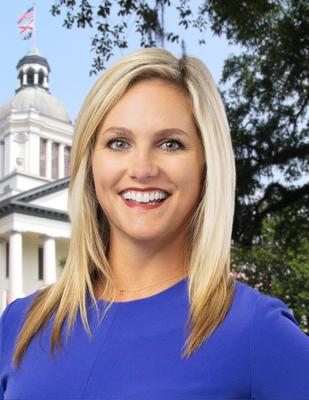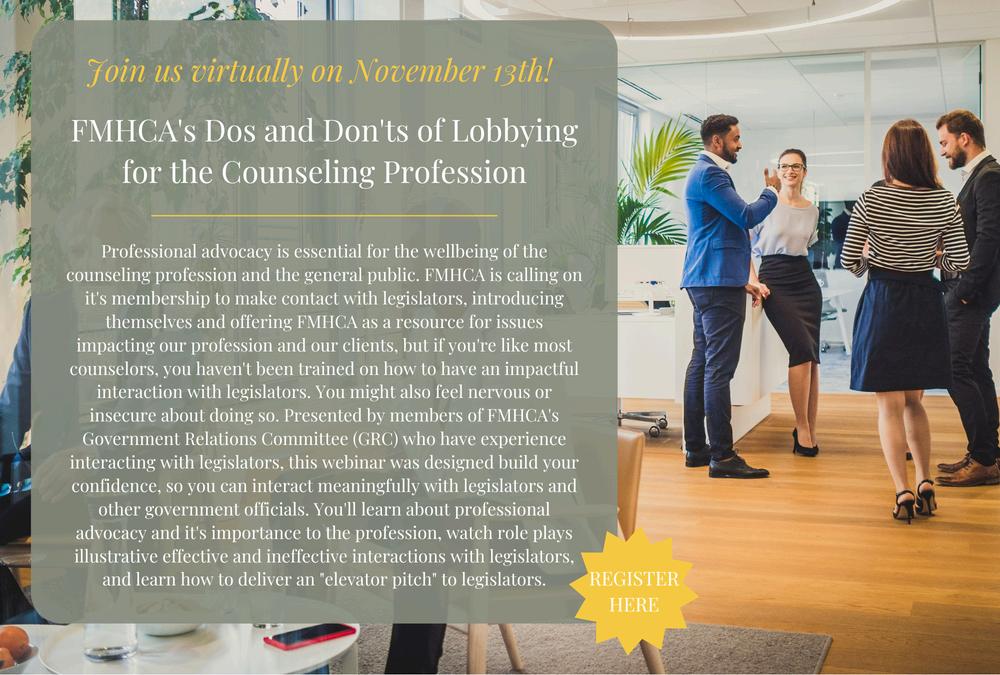
Feature Article | Page 24


Feature Article | Page 24
Sandra B. Stanford’s Path from Client to Sought-After Therapist
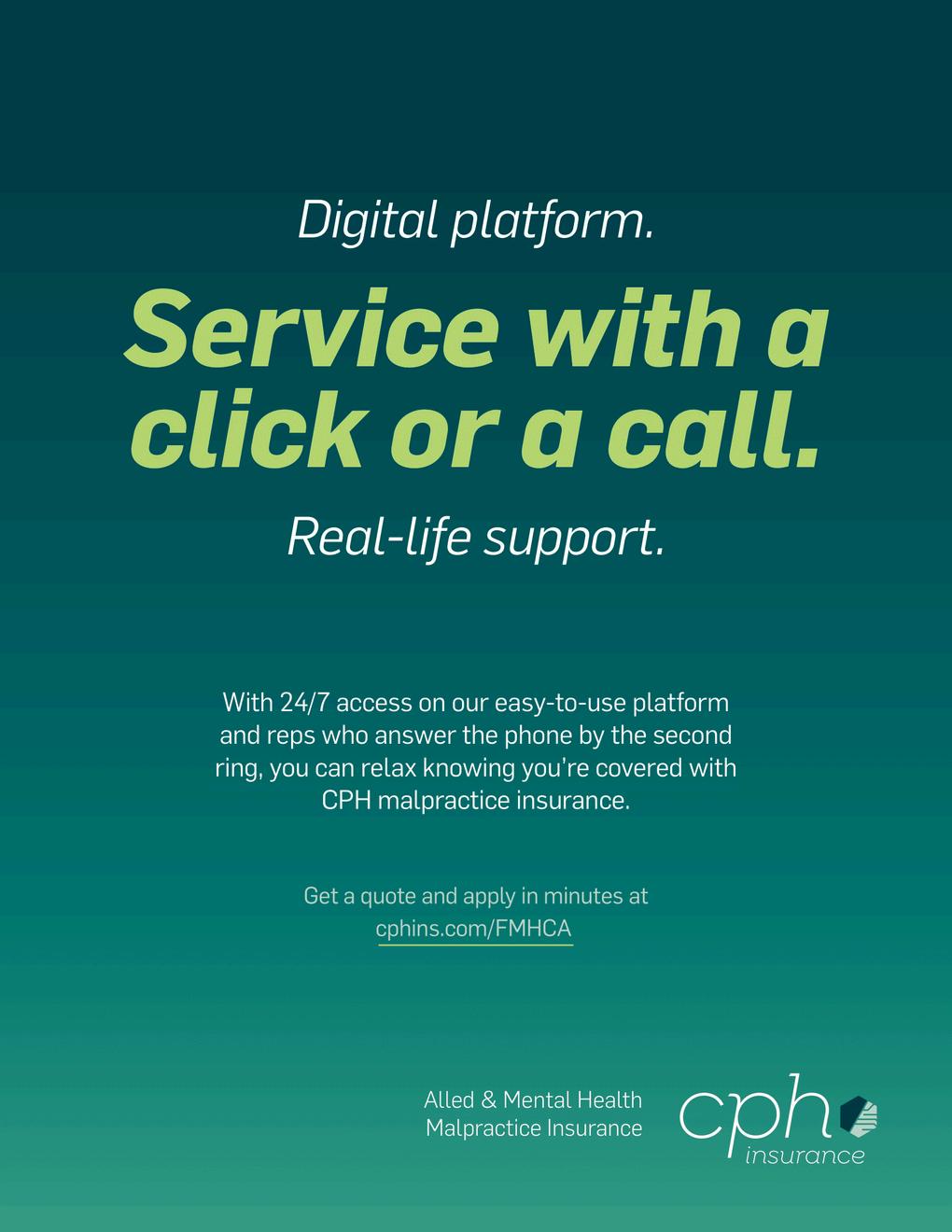
Autumn is not as obvious in Florida as in other states. Few leaves change colors and only some fall from the trees. In my yard a lot of leaves fall but that is the result of what I have diagnosed as being “horticulturally inept”. Anything brave enough to grow in our yard is applauded from a respectful distance. In my counseling practice, I always viewed fall as the calm before the next busy holiday season for client appointments as well as family gatherings. Fall is also a high activity time for our FMHCA Staff who are busy with the many details that go into making our 2025 Annual FMHCA Conference the premiere professional event that it has become
For planning purposes, September is my January. Rather than wait until January First to make those New Year’s Resolutions, I think of September as the time to review my workflow and work habits to decide what needs to change or adjust for the next year. It’s also a less frantic time with fewer social and family event commitments. By making new choices well before the
holidays, I have more time to plan for implementation
Let me offer you the challenge I give to myself: What can you do now to make your work hours more efficient, productive and yes, even pleasant? Like leaves, some tasks or habits have served their time and may need to “fall off” your schedule to make room for new opportunities. I plan a quarterly knowledge refresh to learn new skills or discover new research that relates to practice specialty or exploring new techniques. That’s where our FMHCA Webinar series is the practical opportunity for busy Counselors who can learn and earn (CEs) without leaving the office. Think of this as your time to “fall” back in love with learning new ideas and professional renewal so we continually give the best to our Clients
Respectfully,
Dr. Kathie Erwin, FMHCA President
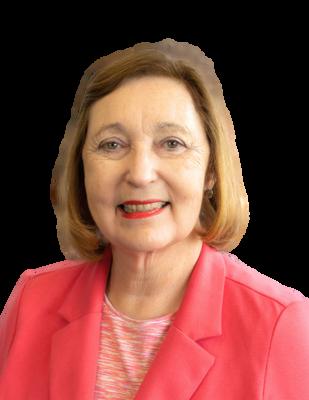


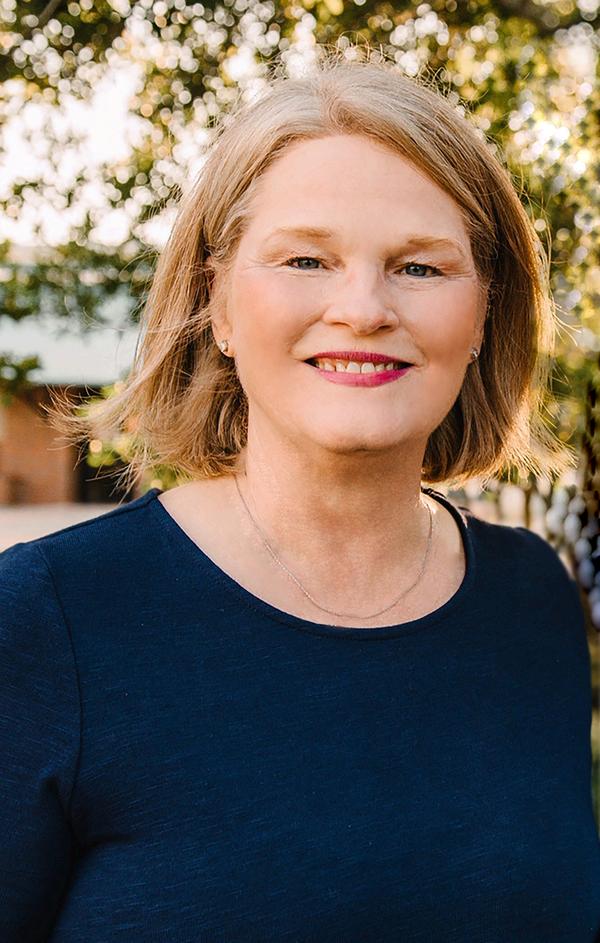

Page 39
FMHCA Committee Updates
Page 42
The Weight of Words: Working for Visibility through Empathy & Connection
Page 45
A Therapist’s View: Clear Boundaries Lead the Way
Page 46
Legislative Update
InSession Magazine is created and published quarterly by The Florida Mental Health Counselors Association (FMHCA)
FMHCA is a 501(c)(3) non for profit organization and chapter of the American Mental Health Counselors Association.
FMHCA is the only organization in the state of Florida that works exclusively towards meeting the needs of Licensed Mental Health Counselors in each season of their profession through intentional and strengthbased advocacy, networking, accessible professional development, and legislative efforts.
Let your voice be heard by becoming a FMHCA Member today!
Click here to view FMHCA's current Bylaws.
CONTRIBUTE:
If you would like to write for InSession magazine or purchase Ad space in the next publication, please email: Naomi Rodriguez at naomi@flmhca org
THE INSESSION TEAM:
Naomi Rodriguez- Editor
Victoria Siegel, LMHC- Expert Advisor

There shall be no discrimination against any individual on the basis of ethic group, race, religion, gender, sexual orientation, age, or disability
Information in InSession Magazine does not represent an official FMHCA policy or position and the acceptance of advertising does not constitute endorsement or approval by FMHCA of any advertised service or product. InSession is crafted based on article submissions received. Articles are categorized between Professional Experience Articles & Professional Resource Articles.
Professional Experience Articles are writer's firstperson pieces about a topic related to their experience as a mental health professional, or an opinion about a trend in the mental health counseling field
Professional Resource Articles are in-depth pieces intended to provide insight for the author's clinical colleagues on how to be more effective with a particular type of client or a client with a particular disorder, or tips for running their practice more efficiently

The Florida Mental Health Counselors Association (FMHCA) is the State Chapter of the American Mental Health Counselors Association (AMHCA) FMHCA is the only organization dedicated exclusively to meeting the professional needs of Florida’s Licensed Mental Health Counselors
The mission of the FMHCA is to advance the profession of clinical mental health counseling through intentional and strengthbased advocacy, networking, professional development, legislative efforts, public education, and the promotion of positive mental health for our communities
Its sole purpose is to promote the profession of mental health counseling and the needs of our members as well as:
Provide a system for the exchange of professional information among mental health counselors through newsletters, journals or other scientific, educational and/or professional materials
Provide professional development programs for mental health counselors to update and enhance clinical competencies
Promote legislation that recognizes and advances the profession of mental health counseling
Provide a public forum for mental health counselors to advocate for the social and emotional welfare of clients
Promote positive relations with mental health counselors and other mental health practitioners in all work settings to enhance the profession of mental health counseling
Contribute to the establishment and maintenance of minimum training standards for mental health counselors
Promote scientific research and inquiry into mental health concerns
Provide liaison on the state level with other professional organizations to promote the advancement of the mental health profession
Provide the public with information concerning the competencies and professional services of mental health counselors
Promote equitable licensure standards for mental health counselors through the state legislature





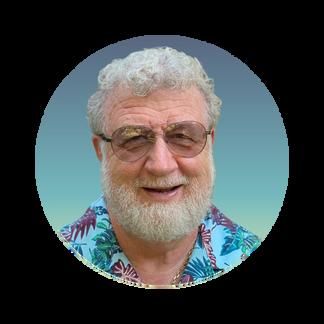

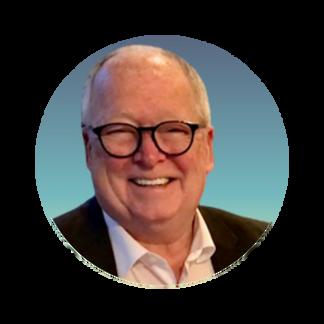

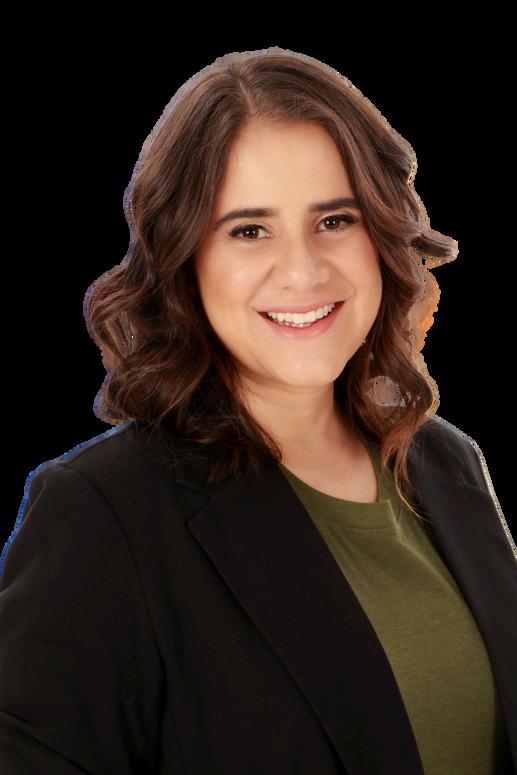




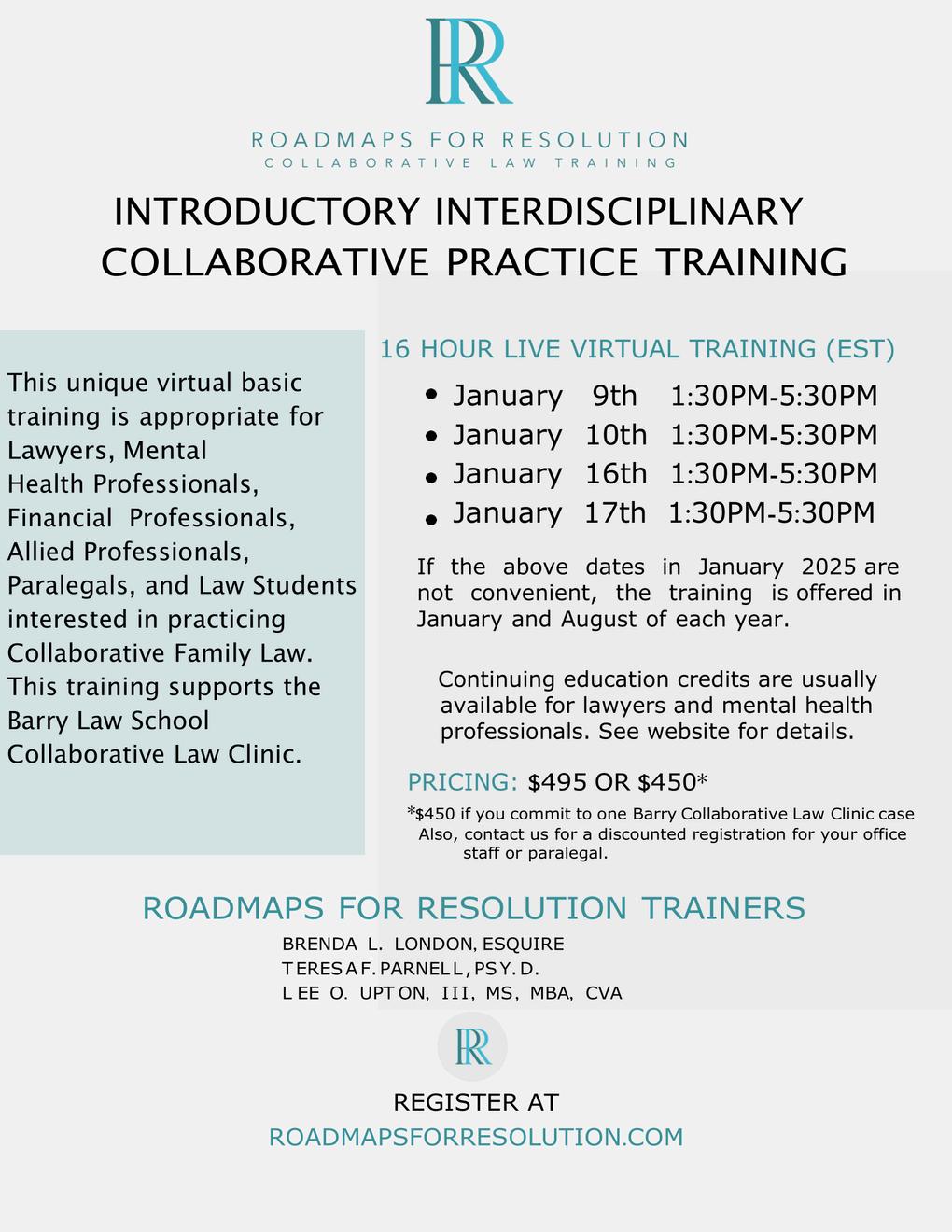

If you hadn’t heard it before, there seems to be a stereotype out there that healthcare providers make the worst patients and mental health providers make the worst therapy attendees Why? We’re guilty of rationalizing resistance and avoidance to therapy just like anyone else We already know many coping skills we’ve taught others about self-care and we likely have saved lists of positive self-talk statements to offer to our clients in our files. I’ve been able to relate to many clients when discussing the addition of one more thing to your schedule; a schedule that is probably already over-filled with work, chores, commitments to friends and family etc. I could write all day about excuses we come up with not to take the time to seek emotional relief and support for ourselves.
On the flip side, I often find myself reminding clients that ‘therapists are people too’, in an effort to demonstrate that everyone else doesn’t have it easier Life isn’t a cakewalk even when it might look like smooth sailing from the other side of the counseling coin. Therapists struggle with relationships, and triggers, and emotional burnout…we have piles of clean laundry waiting to be put away and dishes we haven’t gotten to at the end of the day. Our struggles are what help us offer information to clients that is relevant and easy to digest. Our clients feel heard and understood when we can speak from a place of experience (and appropriate self-disclosure).
The question is whether seeking therapy/counseling is a responsible choice when our jobs are to be an emotional holding space for others When supervising interns or speaking with coworkers new to the field my answer to questions such as ‘what is the hardest part about being a therapist?’ is: showing up for others when you’re struggling to show up for yourself. This involves very deliberate compartmentalization, at times. Compartmentalization is the ability to place emotional content in neat, separate boxes so that one concern/anxiety/frustration
doesn’t flow over into other areas Keep subjects that are sure to make you cry closed up while you’re in session, in a meeting or completing an assessment Sounds pretty necessary, right?
We know that therapy often involves taking the lid off some of those boxes; how can you examine it if the lid is glued on and wrapped tightly with that necessary professional caution tape? I often tell clients that we don’t want to open any boxes during our intensive outpatient program and partial hospitalization program that we can’t comfortably address during the length of the program Details of trauma and processing of emotions surrounding traumatic events is best saved for individual therapy, where it can be addressed long-term and the lid can be placed back on the box without using a wrestling move (like when you’ve overpacked your suitcase).Boxes aren’t going to be examined and reorganized in one session, and certainly not in time to wake up for work the next morning ready to support others; that level of compartmentalization might involve some duct-tape and a fork-lift.
For these reasons, I find myself wondering how to address my own therapeutic journey I hemmed and hawed for months about utilizing services, using all of my prefab excuses I listed above and finally deciding to give it a go (not for the first time) In questioning my colleagues on this subject, I got varying responses. Generally and paraphrased, I got responses like ‘therapists are people too and have their own lives and struggles, so of course therapy would be of benefit’ and one particular response of interest that therapists should seek counseling for events and episodes but leave the unraveling of deep-seeded emotional content for another day. Or month. Or year.
I think the moral of the story is, like most things, each person’s therapeutic journey may look different Do what feels right to you, and what you think you can handle while knowing your role requires your strength and ability to show up for your clients every day.
Written By: Jocelyn Patterson, LMHC-QS, ATR-BC
Jocelyn is a board-certified art therapist and licensed mental health counselor. Jocelyn currently works within intensive outpatient mental health programs, and has experience withi forensic settings. More of Jocelyn’s featured content and perspectives on professional development within the counseling field can be found on LinkedIn and/or professional social media account @paintyourprogress. Jocelyn has been working to promote art therapy and introduce clients to communication using an alternative language of visuals


Boundaries are an important component that must be adhered to and addressed in regard to therapeutic relationships Without boundaries, chaos and pandemonium will occur Having boundaries is significant because a definite line is apparent, which in turn gives the counselor as well as the individual seeking counseling a sense of comfort. This comfort will then be apparent in how issues will be addressed and how successful the sessions are as they progress. This article seeks to address the importance of boundaries and presents examples of boundary violations as they relate to the therapeutic encounters.
There is a need to protect the client American Counseling Association (ACA), (2005) states in A 1 a,” The primary responsibility of counselors is to respect the dignity and to promote the welfare of clients,” (p. 4). Boundaries ensure that the therapist understands that the needs of the client outweigh the needs of the counselor. The client who is seeking help needs to be in a safe environment to share their struggles and should not have to worry that they may be taken advantage of by an unethical counselor. “The professional is prohibited from exploiting a client and must refrain from actions that might be harmful to the client,” (Walker & Clark 1999, p.1435).
In lieu of the issues predating our current day, boundaries are pertinent in order to present and keep a distinct line between the counselor and client. Boundaries are designed to protect both, the counselor and the client. Here are two examples of
possible boundary issues being addressed during therapeutic encounters with clients These examples give therapists insight into what they could potentially face when carrying out their responsibilities
The first example of such a boundary issue entails inappropriate behavior by the client upon the therapist during a home visit. The client violated the counselors’ personal space without asking permission. The therapist asked for the client to step back and give them space, but the client continued to close in and try to initiate nonsexual contact which was very uncomfortable to the therapist Though well intentioned, inharmonious non-sexual physical contact may be experienced as aggressive, frightening and intimidating, (Pope and Wedding 2007) In order to protect themselves from future potential boundary issues with this client, the therapist can take one of the following actions. One, the counselor ensures going forward that all visits take place at the office so that there are colleagues present to offer more direct assistance, and/or protection. Secondly, the therapist will choose to have a co-therapist travel along with them when doing future home visits to see this client.
The second example of a boundary issue being addressed encompasses inappropriate comments made by the client towards their therapist The comments which are of a sexual nature from the client are directed toward the counselor. When the counselor tried to redirect the client to the more appropriate
boundaries, the client did not adhere to redirecting. Instead, the client continued with the inappropriate language and was manifesting toward a more physical action Firstly, the counselor immediately informed the client of the ACA code of ethics (2005) C 6 a Sexual Harassment, that sexual solicitation, physical advances, or verbal or non-verbal conduct was a violation of client/counselor privileges Secondly, the counselor explained to the client that these comments were unsolicited, and that their behavior is out of line. Lastly, the counselor also brought in their supervisor to further address this issue with the client so that they understand that if this behavior is continued, they will be discharged from counseling immediately.
Boundaries are the foundation that protects the therapeutic environment These limitations are set up to provide counselors with a road map of what is and is not acceptable Additionally, it provides peace of mind to the client to ensure that their experience is confidential and professional Therefore, in order be an effective counselor, boundaries must be adhered to strictly. Adams (2005) explains, boundaries “are integral to how our identity is constructed; because they are so central to the development of our personalities, to how we think and feel about ourselves and how others experience us,” (p. 1). Without appropriate boundaries, a counselor could send a potential
Adams,J.(2005).BoundaryIssues:usingIntelligencetogettheintimacyyouwantandthe independenceyouneedinlife,love,andwork.RetrievedonSeptember2,2024,from http:///www.gcu.edu
AmericanCounselingAssociation.(2005).Codeofethics.RetrievedonSeptember2,2024,from http://www.counseling.org
Pope,K.,&Wedding,D.(2007).Multiplerelationshipsandboundaryissuesinpsychotherapy: Nonsexualmultiplerelationshipsandboundariesinpsychotherapy.RetrievedonSeptember2,2024, fromhttp://www.gcu.edu
Walker,R.,&Clark,J.(1999).Headingoffboundaryproblems:Clinicalsupervisionasrisk management.PsychiatricServices,50(11),1435-1439.
Written By: Dr. Roydrick Jones
Roydrick is a substance abuse therapist, certified recovery coach and case manager in a community mental health setting. He has experience counseling adolescents, teens, adults, and seniors working to build sobriety from substance misuse Roydrick has received certifications for Motivational Interviewing, Stages of Change, Forensic Specialist Training, Recovery Coaching, and Recovery Coach Trainer He has completed his doctorate Roydrick’s main focus is on assisting colleagues in mitigating burnout and/or compassion fatigue through strong self-care practices


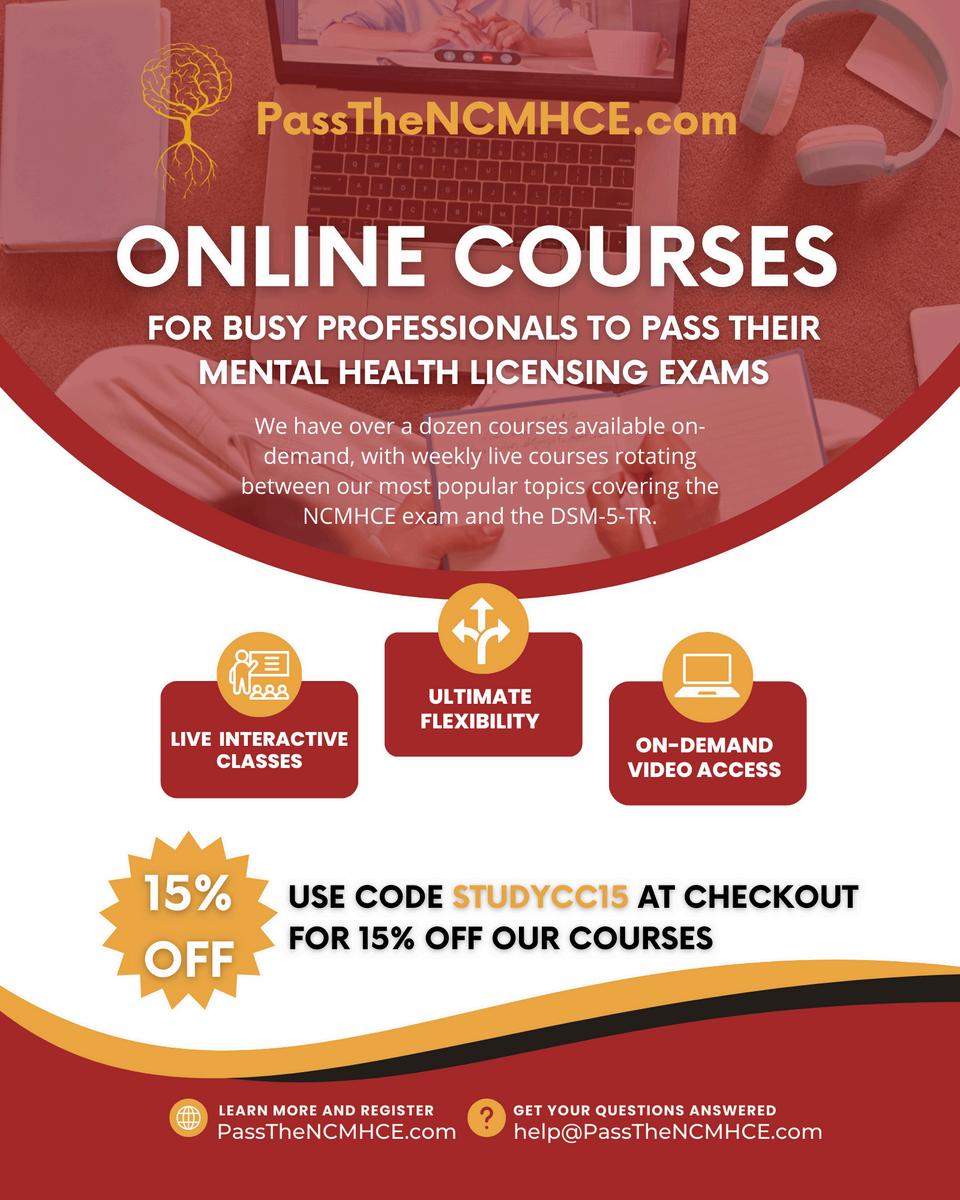

Employment is a major part of someone ' s life. A job could give someone purpose, meaning and hope for the future. A client’s mental health can be affected by their job which could give them the feeling of being a member of the society and that they contribute to their community. Employment can be very meaningful and enriches people's life. Licensed mental health counselors can understand why their clients would want to find purpose, connect with their peers and participate in meaningful activities.
In my previous role as a Vocational Rehabilitation Counselor, the feedback that I received most often from the program participants was that working improved their mental health symptoms and outlook for life. I have previously worked with individuals that were diagnosed with severe depression and they stated that they would spend their day staring at a wall without any hope or prospect for the future. They described
that they would wait for their family members to return home from their job, in the meantime their symptoms only worsen while hopelessly waiting for something to change for the best At work, individuals get to socialize with others, they could feel the support and compassion from their coworkers while engaging in meaningful activities.
A job could give them structure by helping to establish a routine From waking up at a certain time, getting ready, commuting to work, completing assignments, meeting deadlines and other work activities while following a specific work schedule When someone is unemployed, their thoughts and energy typically revolve around their symptoms Work helps occupy their mind with productive thoughts and activities while feeling a sense of normalcy. The challenges that many individuals with mental disorders and other disabilities face daily can be overwhelming. Work could be a great distraction that could bring hope for a better future.
An agency that helps individuals with physical and mental disabilities find employment is Vocational Rehabilitation, which promotes becoming independent Some of their services include self-advocacy, pre-placement training, job exploration, placement and other services that can help individuals to take the next step towards their career We hope to inspire them for a better future while assisting in becoming more independent. The process of becoming independent can be challenging but with the right support system, it's possible. The hope for a better future is feasible with the help from their family, friends, therapist, vocational rehabilitation counselor, case manager and other people in their lives Working could be a way for their symptoms to become for manageable by engaging in meaningful activities and by finding a job that is the right fit for their needs and abilities Change can be difficult but with the support of their therapist, they could overcome those challenges Mental Health Counselors can incorporate suitable theories and techniques such as motivational interviewing to support the client's progress and aspirations for a better life.
Written By: Magdhalini Meshak, LMHC, CRC
Magdhalini graduated from the University of South Florida with a Master’s of Arts degree in Rehabilitation and Mental Health Counseling in 2019 She is a licensed mental health counselor in Florida and a nationally certified rehabilitation counselor She has extensive experience working with adolescents and adults with severe behavioral and mental health disorders She is currently working as a Vocational Rehabilitation Supervisor for the Division of Vocational Rehabilitation in Area 4

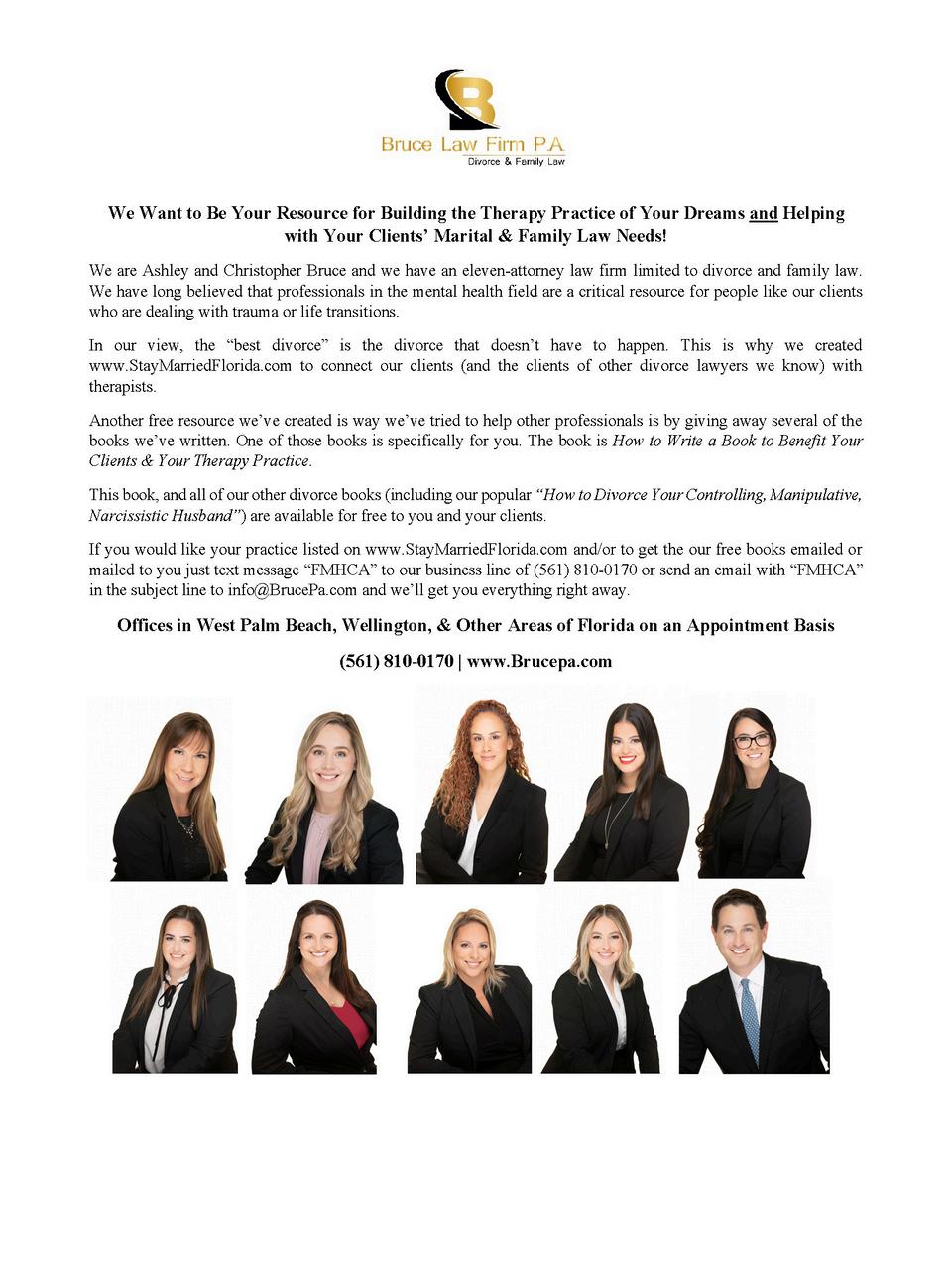

In our quest to be good parents, loving partners, and dedicated professionals, we often lose sight of a crucial truth: we must prioritize ourselves to sustain the relationships we cherish. Many of us believe that giving all of ourselves to others is the hallmark of love and responsibility. Yet, when we neglect our own needs, we risk emotional exhaustion, resentment, and even the unraveling of the very bonds we strive to maintain
Consider the story of a middle-aged father of two who seemed to have it all: a thriving career, good health, and a seemingly perfect family life. He and his wife rarely argued and shared in every milestone of their children’s lives. However, beneath this picture-perfect exterior, he was grappling with profound guilt and depression. Years after his marriage had ended, he still couldn’t forgive himself for being unfaithful to his loyal, loving wife. “It meant absolutely nothing,” he would say, reflecting on the affair. “I cheated on my wife with someone who will never mean anything to me ”
But the issue ran deeper than the infidelity itself. In his relentless pursuit to be the ideal husband, father, and employee, he had slowly abandoned himself. He had once been a passionate musician who loved playing the guitar, but he hadn’t picked it up in years. Over time, his life became a series of roles
to fulfill, with no space left for his own interests or friendships. His children grew distant, and he lost his marriage, but the most significant loss was losing the sense of who he was long before these events occurred.
This scenario is familiar We pour everything into our roles, believing that selflessness is the key to strong relationships Yet, when we continually sacrifice our own needs, we can end up feeling depleted and disconnected. This can lead to burnout and resentment, where we may find ourselves blaming those we love for taking more than we have to give. In some cases, it can even lead to self-destructive choices like an affair that are desperate, misguided attempts to reclaim a sense of control or identity.
To help him rebuild, we turned to Cognitive Behavioral Therapy (CBT), an approach that helps challenge and replace unhelpful thinking patterns Through CBT, he began to see that his overwhelming guilt was not just about his mistake but also about years of neglecting his own needs. He had internalized harmful beliefs “I’m a failure,” “I don’t deserve happiness,” “I have ruined everything” that kept him stuck in a cycle of selfblame. Slowly, he started to understand that while his actions had consequences, they didn’t define his entire life or character.
He also took steps to reconnect with the person he had been a man with passions, dreams, and a life beyond his roles as a father and husband He set small but meaningful goals: playing his guitar again, reaching out to old friends, and creating boundaries that allowed him to be present for his children without losing himself in the process. His relationships started improving not out of duty, but from a place of genuine connection.
His story is a powerful reminder that self-care is not a luxury but a necessity When we neglect our own needs, we risk becoming resentful and emotionally distant, feeling that those we care about have taken more from us than we have left to give Healthy, enduring relationships require each person to bring their whole, authentic selves into the connection. This means carving out time for personal growth, nurturing our passions, and maintaining a support system that extends beyond family and work obligations.
Being an adult is not just about fulfilling roles; it’s about recognizing the importance of maintaining our own well-being By doing so, we create a foundation of emotional resilience, empathy, and authenticity that enhances every relationship in
Ultimately, the most profound act of love and responsibility we can offer is to take care of ourselves first. Only then can we give fully and freely to others. You cannot pour from an empty cup so make sure to fill yours. When you prioritize yourself, you not only prevent resentment but also enrich the connections that matter most, creating deeper, more meaningful relationships grounded in balance and mutual respect
Written By: Monik Mossini, LMHC
Monik is a psychotherapist specializing in mood disorders and anxiety, working with both adolescents and adults With extensive experienc in Partial Hospitalization (PHP), Intensive Outpati (IOP), and outpatient settings, she provides comp tailored to each client's needs Trained in DBT, CBT, and mindfulness, Monik combines these evidence-based approaches to help clients build resilience, navigate their challenges, and achieve lasting emotional well-being Her practice is centered on empathy, empowerment, and fostering meaningful growth


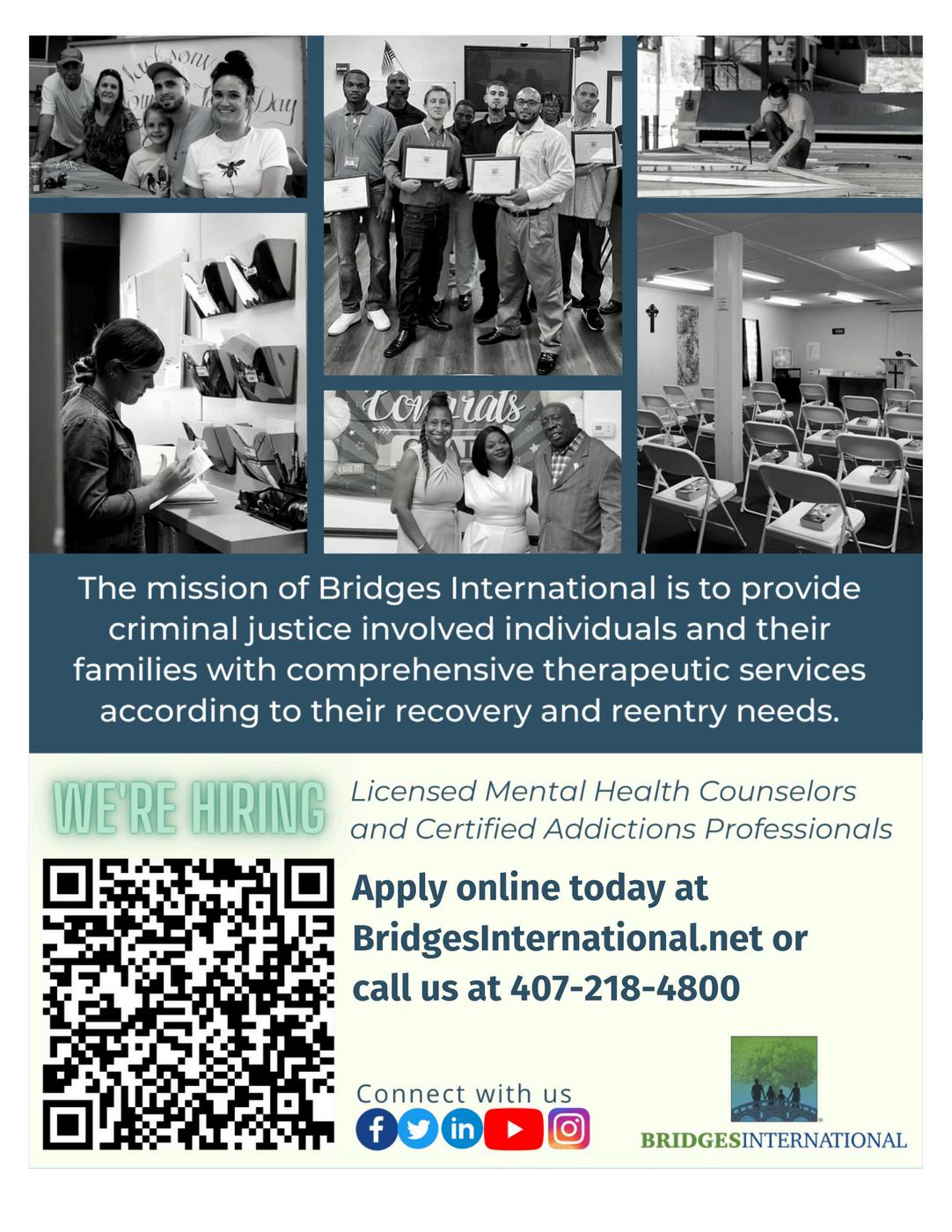

While holiday chocolates are always nice, well-read revelers often desire something a bit more…well, bookish. Let the bibliophile in your world count down the days to Christmas with a calendar packed with literary surprises designed just for them.

Keep your focus on track before your brain dreams up escape plans with a trio of sophisticated gadgets designed just for grown-ups. With the satisfying click of magnets or the soothing squish of stress-relieving materials, each fidget tool keeps professional fingers busy and business minds sharp. In other words: Sorry, kids these toys are not for you.

Every kitchen deserves good, fresh olive oil that’s affordable enough to be used every day.
Most olive oil in the U.S. is blended from old, low quality oils. But across the ocean, people are using fresh, never-blended olive oil by the gallon. Graza is that olive oil. They are made from 100% Picual olives from Jaen, Spain, the region where over half the world’s olive oil is produced.
The next great undiscovered artist might be sleeping on your windowsill right now…or maybe gnawing on your shoes. Prepare to rock the art world and have a blast with your furry friend as they explore this playful painting kit that’s just for them. Unleash their creativity and turn their natural curiosity into colorful masterpieces that’ll have everyone saying “Who’s the artist?”


Get yours here
Soften, nourish and protect hands with this ultra-creamy, best-selling formula.
Most-loved for a reason, this nourishing best-selling Shea Butter Hand Cream transforms hands from dry to soft and supple. Formulated with 20% Shea Butter, 97% found skin was immediately soothed after just 1 application. *Based on ISO 16128 standard


The basic recipe for the sleepy girl mocktail is simple: 1/2 cup pure tart cherry juice, 1 tablespoon of magnesium powder, A bit of fizzy drink to cut it, like a prebiotic soda or sparkling water Simply stir, sip and sleep tight! Sleep is a critical part of keeping your body and your mind healthy So, it’s important to find ways to make sure you’re getting the rest you need. If you want to try adding the “sleepy girl” mocktail to your bedtime routine, talk with a healthcare provider about any chronic conditions or medication that may not react well with tart cherry juice or magnesium powder.
Bio-Collagen Real Deep Mask is a hydrogel mask made by solidifying 1 19 ounces of highly-concentrated serum As your skin absorbs the active ingredients, it becomes transparent.
Get yours here.

Fresh chocolate is the best chocolate. That’s why Laderach is there every step of the way – from the cocoa fruit to the chocolaterie. They seek out the world’s most aromatic cocoa beans, obtaining many of their natural ingredients directly from Switzerland
1/2 pound lean ground beef
1/2 pound ground Italian sausage
salt and freshly ground black pepper
1 yellow onion , chopped
1 Tablespoon olive oil
3 cloves garlic , minced
2 Tablespoons tomato paste
1 recipe homemade marinara sauce (or 24 ounce marinara sauce)
1/4 teaspoon red pepper flakes
2 Tablespoons fresh parsley , chopped (or 2 tsp dried)
1/2 teaspoon dried oregano leaves
1 teaspoons dried basil
7 cups low sodium chicken broth (or vegetable broth)
9 lasagna noodles , broken into pieces
2 cups fresh spinach leaves (optional), 10 ounces ricotta cheese (or cottage cheese)
1 cup shredded mozzarella cheese
1/2 cup freshly grated parmesan cheese fresh basil , for serving
In a large pot over medium-high heat, cook ground beef and sausage until browned. 1. Season with salt and pepper as you cook. Drain grease and remove meat from the pot. 2.

In a large pot heat olive oil over medium heat. Toss in diced onion and sauté for about 5 minutes, stirring occasionally. Add in minced garlic and cook for another minute or two.
4. Bring to boil then add lasagna noodles (broken into 4ths) to pot
Stir in tomato paste, marinara sauce, spices, and broth. Return meat to pot.
5 and reduce heat to medium-low and cook, stirring occasionally, until noodles
6 are tender Add spinach, if using
7 In a small bowl, stir together mozzarella, Parmesan and ricotta cheeses
9

8 Ladle the hot soup into bowls, and dollop a scoop of the cheese mixture on top Garnish with fresh basil
Reduce anxiety, manage stress, and become more aware of your thought patterns with this easyto-use, guided notebook Utilizing Cognitive Behavioral Therapy, a rigorously-tested and widely-used treatment, you’ll develop the skills to identify, challenge, and change unhelpful thought patterns so you can feel better.
Lemme Sea Organic Wildcrafted Irish Sea Moss Liquid Drops with Vitamin D3 and Biotin for an extra boost of beauty, immunity, brain and skin health Irish Sea Moss is a unique species of red algae which grows abundantly along the rocky parts of the Atlantic coast of Europe and North America. Irish Moss is known for its incredible wellness benefits, get yours here.

Pilates can improve muscle tone, flexibility and strength, as well as help you heal from injuries
While Pilates has been around for nearly 100 years, it continues gaining traction, picking up new devotees all the time. Part of the reason it’s become such a popular mode of exercise is that it’s customizable to fit you and your health goals, regardless of your age, sex, health status and fitness level

Some of the principles that guide the Pilates method include concentration on each movement, use of the abdomen and low back muscles, flowing, precise movement patterns and controlled breathing Depending on the exercise, Pilates routines can be performed on specially designed apparatuses, including a bed-like structure called a reformer, or more simply on a mat or blanket.
Pilates isn’t going to bulk you up- if anything, it’s designed to cultivate a longer, leaner look Still, it can lay a strong physical foundation for muscle-building activities- and may even reduce your likelihood of injury
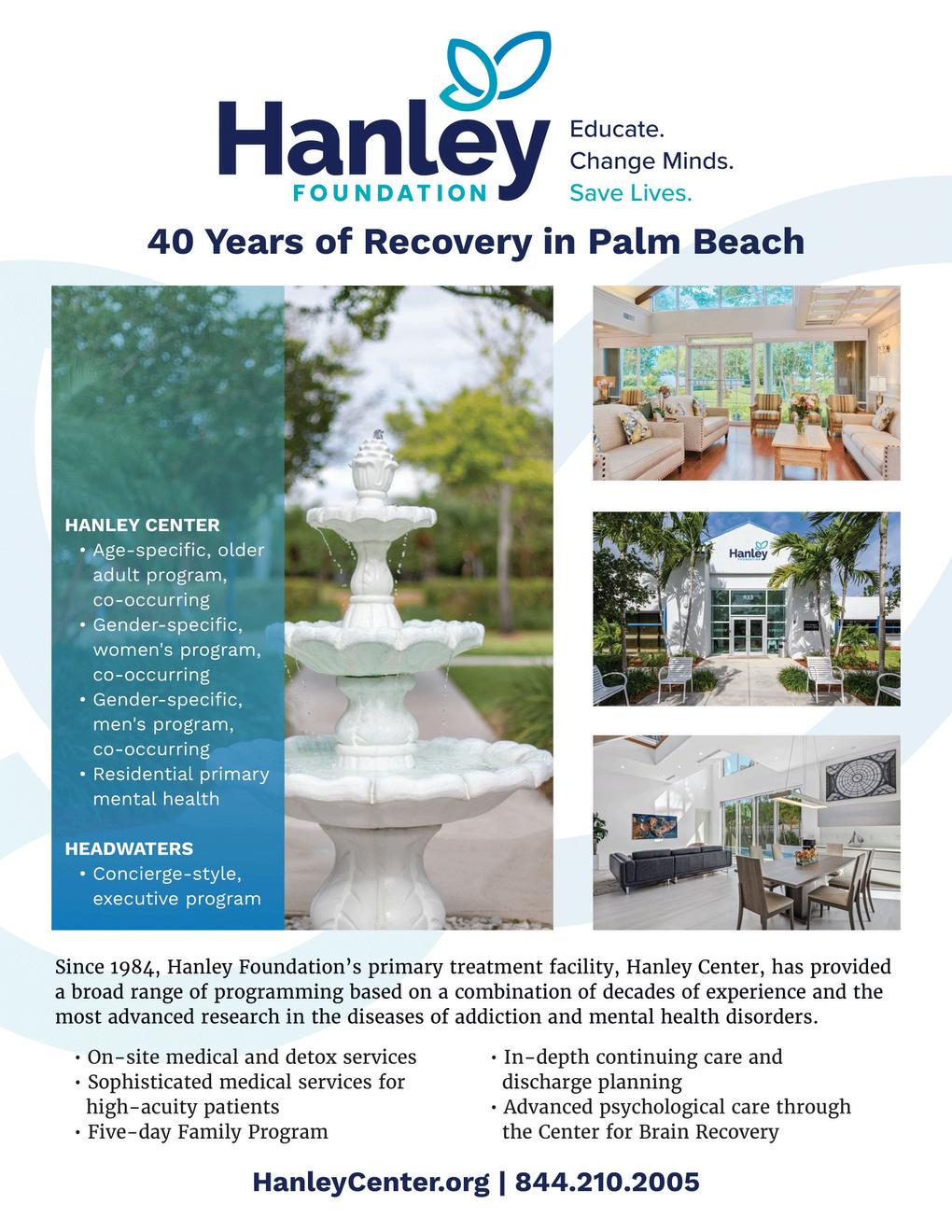

As Registered Mental Health Counseling Interns (RMHCIs) with advanced degrees, we often find ourselves navigating a unique and challenging space equipped with extensive academic knowledge yet still under supervision. This dual reality presents its own set of hurdles, and chief among them is imposter syndrome. Despite our education and the progress we ' ve made, there are times when we may feel out of place, questioning whether we truly belong in this field
Imposter syndrome doesn’t discriminate. It affects individuals at all levels, regardless of their experience or credentials. However, for those of us who are newly licensed or still in the process of becoming fully licensed, the risk can be particularly pronounced. We are embarking on our professional paths with a wealth of theoretical knowledge, yet we are still honing our practical skills. This transition from theory to practice can be daunting, and it is during these early stages that self-doubt often surfaces.
The pressure to meet our own high expectations, and those of others, can be overwhelming. We have invested years in studying, researching, and preparing for our careers, and yet, there are days when we walk into a session and wonder, “Am I truly equipped to help this client? What if I make a mistake?” These doubts can be paralyzing, especially when we are under
close supervision and our work is subject to evaluation
But let’s face the truth together: imposter syndrome is not a reflection of our abilities. It signifies that we care deeply about our work and our clients It indicates that we are pushing ourselves to grow, to move beyond our comfort zones, and to become the best therapists we can be And while the path may feel uncertain at times, it is in these moments of vulnerability that real growth occurs
One of the most empowering realizations we can have is that imposter syndrome is a shared experience, particularly among RMHCIs and newly licensed counselors. We are in a phase of our careers where we are building our confidence, learning from our experiences, and finding our footing in a complex field It is perfectly okay to feel unsure this uncertainty is a natural part of the process
What has helped us navigate this journey is leaning into the support systems around us. Supervision offers a crucial space for reflection, learning, and receiving constructive feedback. It is here that we come to understand that perfection is not required, and making mistakes is not a sign of failure but a fundamental aspect of becoming a skilled clinician Our supervisors remind us that growth is a gradual process, and each session, each
client, provides an opportunity to learn and improve
Peer support is also invaluable. By connecting with other RMHCIs facing similar challenges, we find that we are not alone. Sharing our fears, triumphs, and learning moments with peers helps to lift us up. There is strength in community and knowing that others are walking this path alongside us is incredibly reassuring.
In the face of imposter syndrome, let us embrace our journey as RMHCIs with courage and self-compassion. We should remind ourselves that every therapist, regardless of their level of experience, once stood where we stand navigating the early stages of their careers, feeling the weight of responsibility, and questioning their abilities. This rite of passage will ultimately make us more empathetic, resilient, and effective clinicians. Imposter syndrome may never fully disappear, but it does not have to define our experience Instead, let us view it as a marker of our commitment to growth and excellence By trusting in our training, our instincts, and the support of those around us, we can find our voices as therapists, one session at a time. We are stepping into the powerful, transformative roles we are meant
to play, confident and capable
Ultimately, imposter syndrome is a testament to our dedication to our profession. It serves as a reminder of how deeply we care about our work and our clients. As we advance in our careers, let us hold onto the knowledge that we are capable, we are growing, and we are making a difference. By embracing our journey and celebrating our progress, we can overcome imposter syndrome and fully realize the impactful roles we are destined to fulfill
Written By: Dr. Madison Peluso, Ph.D., RM MCAP, CAMS-1
Dr Peluso is the CEO of Frankie's Place
Counseling & Prevention Services, where specializes in sexology and addiction tre With her extensive background in mental health and her doctorate in clinical sexology, Dr Peluso is dedicated to advancing the understanding and treatment of sexual health issues Her leadership and expertise drive the organization’s commitment to providing compassionate, evidence-based care
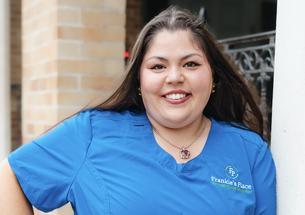
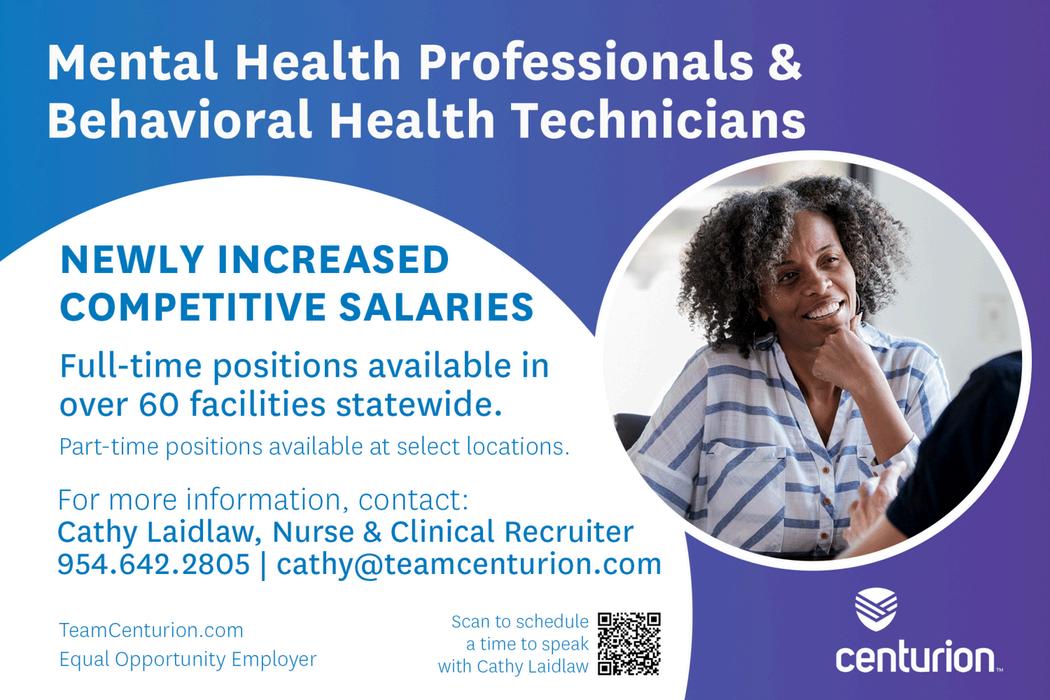

Join in on one of our upcoming webinars!
Is Reunification a Therapy or a Process?
04 October 2024 | 2:00 PM-4:00 PM
Presented by: Christine Hammond, LMHC, NCC Register Now
Superhero Trauma Therapy
11 October 2024 | 2:00 PM-4:00 PM
Presented by: Kathie Erwin, EdD, LMHC, NCC, NCGC Register Now
Trauma Informed Care when working with First Responders
18 October 2024 | 2:00 PM-4:00 PM
Presented by: Meredith Moran, EdD, LMHC, CCTP Register Now
Culturally Responsive Counseling Practice for BIPOC LGBTQIA+ Clients
25 October 2024 | 2:00 PM-4:00 PM
Presented by: Alfonso Ferguson, PhD, LMHC, ACS, NCC and Nadine Ferguson, MEd, CRC, LMHC-LP, RMHCI Register Now
Navigating Family Estrangement
08 November 2024 | 2:00 PM-4:00 PM
Presented by: Patricia Wolfenden, MA, LMHC, LMFT Register Now
FMHCA’s Dos and Don’ts of Lobbying for the Counseling Profession
13 November 2024 | 12:00 PM-1:00 PM
Presented by: Aaron Norton, PhD, LMHC, LMFT, MCAP,CRC, Laura PeddieBravo, LMHC, NCC & Demetrius K Jifunza, MS, LMHC Register Now
Understanding the Neuropsychology of Happiness to Experience Greater Meaning and Purpose
15 November 2024 | 2:00 PM-4:00 PM
Presented by: C Dwight Bain, LMHC Register Now
Beyond the Ashes of Burnout
06 December 2024 | 2:00 PM-4:00 PM
Presented by: Johnece Smith, MS, Eds, LPC, NCC, IMH-E Register Now
The Insomnia Eating Disorder Connection: CBT-I an ACT-Based Approach
13 December 2024 | 2:00 PM-4:00 PM
Presented by: Savannah Hipes, LCSW Register Now
P.S. We are seeking presenters for our 2025 Webinar Series until Nov. 1st! Learn more HERE
In the world of therapy, Sandra B. Stanford is known for her expertise, compassion, and transformative impact. A master in the art of guiding others through their most difficult moments, Sandra's journey to becoming an EMDR (Eye Movement Desensitization and Reprocessing) therapist is deeply personal a story of overcoming anxiety and discovering her calling through a form of therapy that changed her life.
Sandra, a native of Titusville, Florida, has always had a heart for people in need, a passion that led her to earn a Master's Degree in Psychological Counseling. "Counseling found me, " she says with a smile, recalling how her path unfolded unexpectedly. In 20082009, Sandra was a stayat-home mom, with her husband working at the Space Center. When the warning came that he would soon be laid off, Sandra began searching for new opportunities One day, she heard an ad for a counseling master’s program on the radio It felt like a sign
friend asked if she had ever tried EMDR to manage it. That conversation sparked a turning point. “I was embarrassed,” Sandra admits, “but it was true. I panicked over the safety of my loved ones every day.” Seeking help, Sandra found an EMDR therapist, and the results were life-altering.
Sandra’s journey with anxiety can be traced back to a traumatic memory from her childhood, one that she never fully processed until undergoing EMDR therapy At the age of 12, while playing outside with friends, Sandra witnessed a close friend, Stacey, get hit by a car. Stacey tragically died and the trauma from that

During her studies, Sandra began to stand out not just for her academic achievements, but for something deeper. “People saw something different in me,” she reflects Though her initial goal was to pursue teaching, her passion for counseling quickly took over It was during this time that Sandra’s battle with anxiety came to the forefront of her life
Having struggled with anxiety for years, Sandra didn’t realize how visible it had become to those around her until a close
event remained buried, deeply affecting her mental health. “For 40 years, that memory was a 9 on a scale of 10 in terms of distress,” she recalls The lingering effects of that trauma manifested in the way Sandra raised her children constantly worrying, smothering them with concern, and feeling a daily sense of dread. EMDR, however, provided Sandra with something she had never experienced
before: relief. “After just four months of EMDR therapy, my anxiety dropped from a 20 to a 1 or 2,” she says. The therapy took the emotional charge out of her traumatic memories, allowing her to live without the constant fear that once defined her days A pivotal moment came when she was able to calmly pick up her son from his job at the grocery store and saw a dark parking lot something that would have once sent her into a panic That was the moment she knew EMDR was not just a tool
for healing but her professional calling. Encouraged by her graduate school professors and her own transformative experience, Sandra pursued EMDR training. She attended intensive sessions, over 40 hours of instruction and practice, that shaped her into the therapist she is today She not only became a certified EMDR therapist but also took on the role of consultant and trainer, helping other therapists hone their skills “The best advice I ever received was to find a niche, and I knew from my own experience that EMDR was mine,” Sandra says.
As an EMDRIA-approved consultant and basic trainer, Sandra now shares her knowledge and expertise with therapists across Florida and beyond She describes the work as “rewarding beyond words ” She has helped clients overcome a wide range of traumas, from childhood abuse to car accidents. One particular success story stands out: a young woman who had experienced a devastating date rape. When she first came to Sandra, she was nearly paralyzed by fear, unable to function. After 17 EMDR sessions, the woman left therapy transformed and on her way to becoming a doctor. “When she reaches that milestone, I’ll feel like a part of her success because EMDR made it possible,” Sandra reflects Sandra’s work doesn’t just stop with her clients. As an EMDRIAapproved trainer and consultant, she has found a way to marry her love for teaching with her passion for counseling. “It’s been
a dream come true,” she says, crediting the Florida Mental Health Counselor Association (FMHCA) for supporting her journey. Whether through workshops or one-on-one consultations, Sandra’s goal is to equip other therapists with the tools they need to offer EMDR to their own clients, spreading the benefits of this life-changing therapy far and wide.
With upcoming EMDR trainings through FMHCA, Sandra is excited about the future “I can’t wait to meet the therapists who are eager to learn. It opens up a whole new world for them and for their clients,” she says. Participants can expect to leave her workshops with not only a deeper understanding of EMDR but the confidence to apply it in their practice.

and her husband, David
“It’s a big investment, but if you have even a small thought of doing this take the leap,” Sandra advises “You won’t regret it ” Sandra’s journey from anxiety to empowerment, from client to sought-after
therapist, is a testament to the power of EMDR For those considering adding EMDR to their toolkit, her message is simple: “This therapy changes lives It changed mine And it can change yours ”
Join Sandra in one of her upcoming workshops with FMHCA: Healing Inner Wounds Through an Attachment Lens and EMDR Therapy & EMDRIA Approved 5 Day Basic Training! Visit Sandra’s website: CentralFloridaEMDRTraining.com
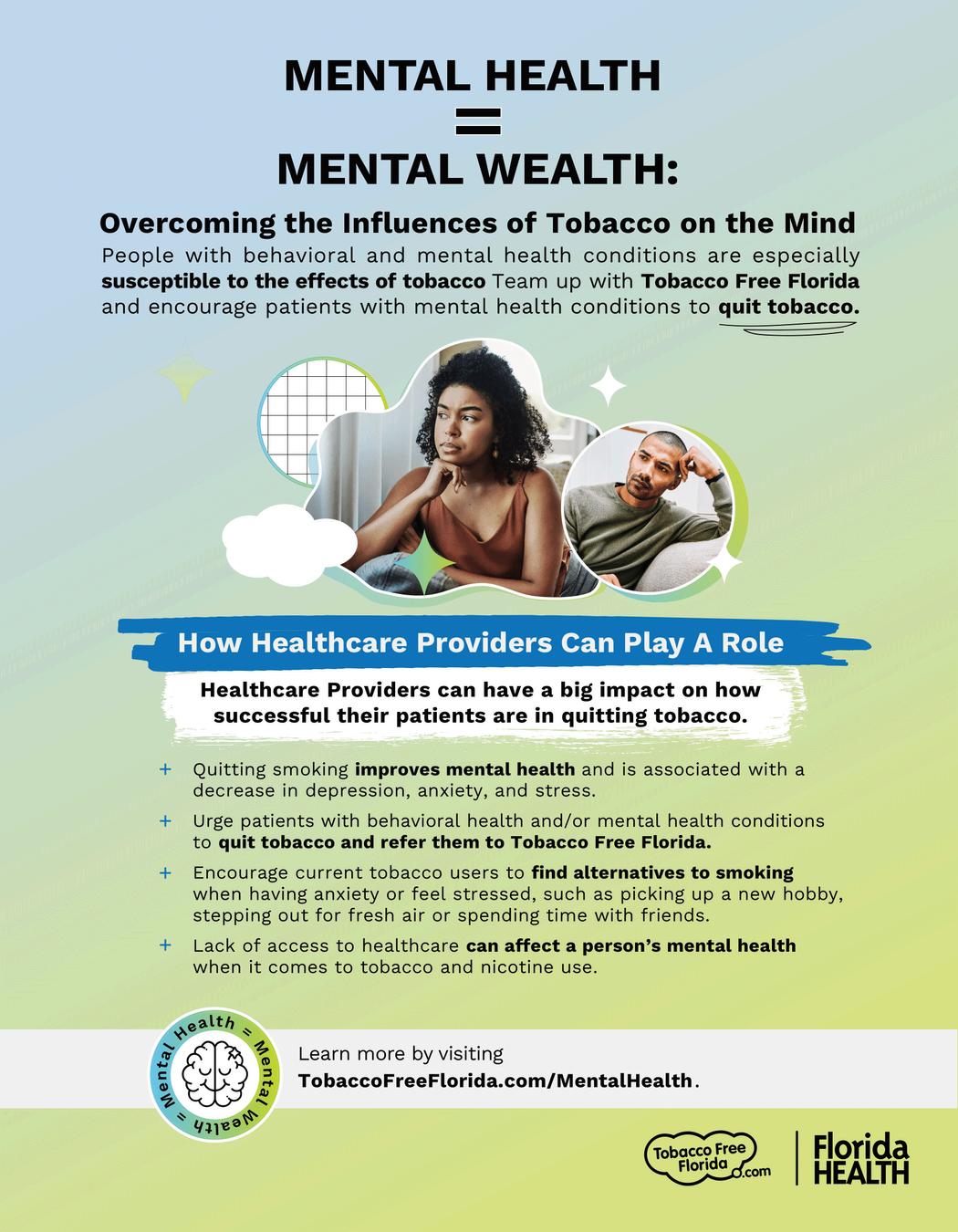


Professional Experience Article
It seems the new fad word(s) on the street these days is “narcissistic” or “narcissist” and just plain “narcissism” Most clients I speak to nowadays describe to me at least one person in their life that is narcissistic or a narcissist. They don’t give any explanation as to why they believe this or if that an actual diagnosis has been made for this person, but angrily tell me that this is what that person is. Anyone who seems to be acting in a way that they don’t care about another person’s feelings or that they are so full of themselves is a narcissist. The person describing the other doesn’t give any thought to their part in the conversation or what having a narcissistic personality disorder truly means. It’s just a word(s) that gets thrown around.
Realistically it is a personality disorder that affects less people than what those in the general population are giving credit to. Narcissistic personality disorder as described in the DSM-V is a “pattern of grandiosity, excessive need for admiration, lack of empathy, interpersonally exploitive, arrogant, haughty behaviors, envious of others or believes others are envious of them and believes they are special and has preoccupation of fantasies of unlimited power, etc.” This is the quick judgment that plagues most of society. We jump to conclusions and make assumptions before we know what we really are talking about. This is human nature and not uncommon.
Why did this come about then? Why are people so quick now to assign this diagnosis to anyone who appears to be arrogant, not show empathy or believes everyone wants what they have? Is it some sort of phenomenon? Not really. We’ve changed in society. We value individualism rather than the collective. We value independence and teaching from a young age that the sky
is the limit We shift our values, and we end up shifting personality traits These traits can lend themselves to some narcissistic ways However, even though society has made some changes it still is not enough to lead to so many people having this new label. It seems to be no different than stating any kid who is hyper has ADHD and anyone who changes their mind/mood is Bi-polar. Yet, this is what the general population tends to do. Throw a label on it making it more difficult for those who are licensed when they make the true diagnosis to get others to buy in.
I don’t have the answers on how to change this It may just be wait until the next fad begins It could be about educating and finding out exactly what is being said or done that makes a client think someone in their life fits these criteria It could even be the person themselves is really the narcissist and they are just pointing the finger at someone else! As counselors we need to continue to navigate this fad, remind the client to focus on themselves and not everyone else whom they cannot control and lastly(but really first) to assess for safety. We, too, can only control what’s in our domain.
Written By: Melissa Eugley, LMHC
Melissa Eugley is a Licensed Mental Health Counselor who has worked in the behavioral healthcare field for 22 years She currently works as a Senior Director of Case Management for a large non-profit organization as well as private practice part-time Melissa specializes in working with adults with severe mental illness, anxiety, stress, ADHD, trauma and depression and addiction
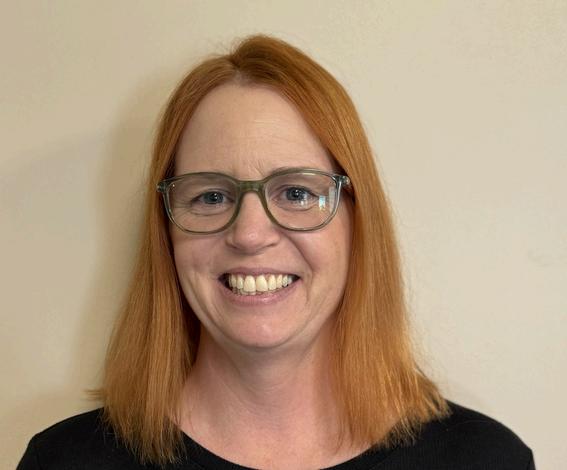
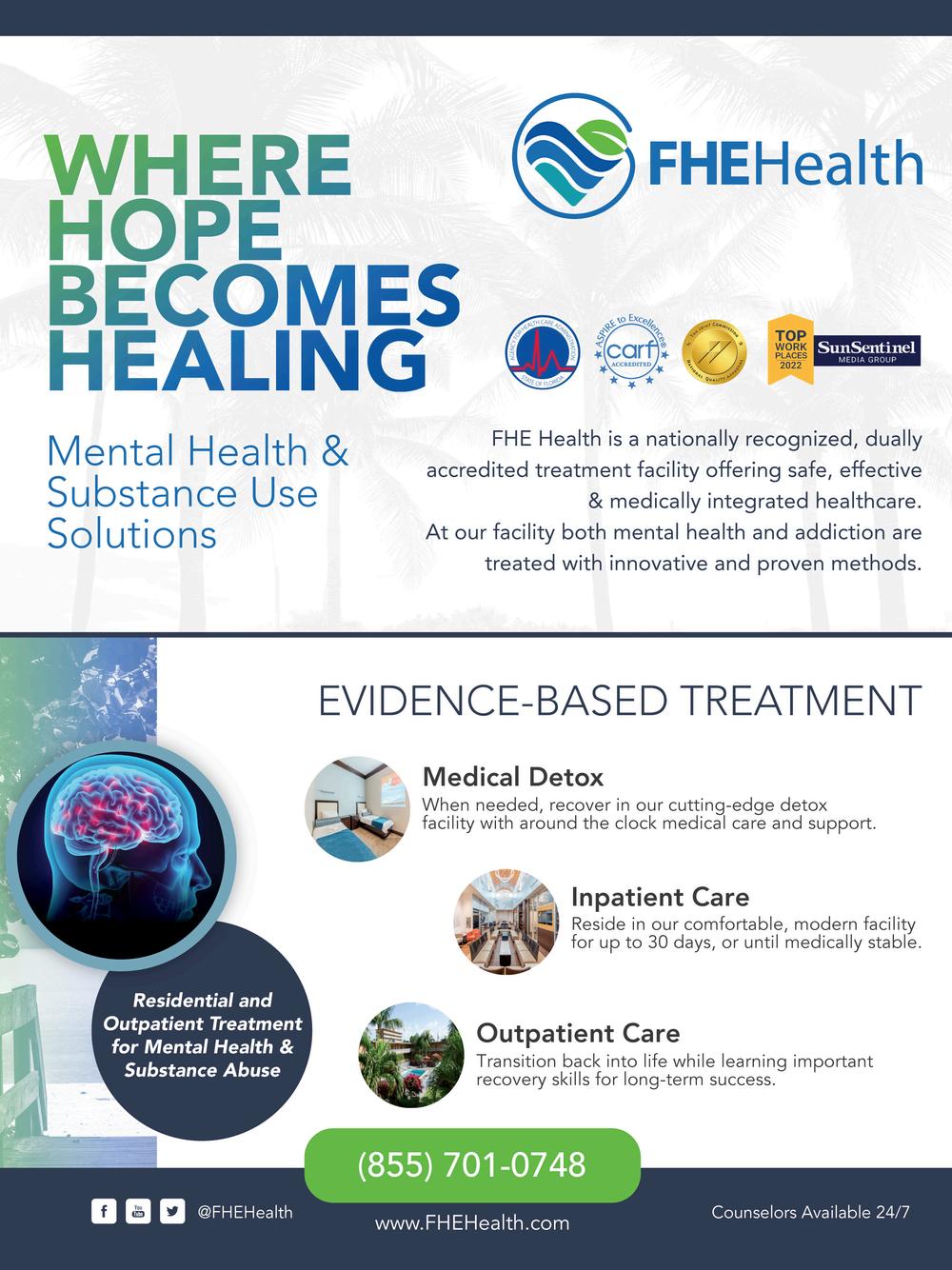

Mental health is a big deal. Just like we regularly see a doctor for our physical health, we need to focus on our mental health too. Therapists play an essential role in this, but what happens when they don’t keep their appointments? Let’s dive into the importance of consistency in therapy sessions and why it matters for both therapists and their clients
Therapy is built on trust. When clients sit down for their sessions, they open their hearts and minds, sharing deep-seated fears and feelings. If a therapist cancels or reschedules too often, it can break that bond of trust. It’s like a bridge that keeps crumbling- each cancellation weakens it a little more. Clients might start to question if their therapist cares or if they’re actually committed to helping them Keeping appointments shows clients that their therapists are dependable and care about their progress
Think about it- healing is a process. It’s not a sprint; its a marathon. Regular appointments create a rhythm, like the beat of a favorite song. When clients know they have therapy
scheduled, they can prepare for it, look forward to it, and make strides in their journey Missing appointments creates gaps, interrupting the healing flow These breaks can set back progress, making it harder for clients to stay on track.
Therapists provide a safe space for their clients. This environment allows clients to express their feelings without judgement. If therapists are frequently absent, that safe space can feel less secure. Clients might sense that something’s off and might hold back during sessions, wondering if they’ll be committed to the process. Consistency in appointments help maintain that sanctuary where clients can explore their emotions and experiences safely
Accountability is vital in therapy. Clients often rely on their therapists to help them navigate challenges and celebrate successes. When appointments are kept, therapists can hold clients responsible for their progress, guiding them on their journey. If appointments are frequently missed, it creates uncertainty in the mind of the client.
Every client is unique, with their own set of needs and experiences. Regular appointments allow therapists to tune in to those needs more effectively. When sessions are consistent, therapists can track changes in their clients’ mental states and adjust their approaches accordingly. Missing appointments can lead to missed signals. It’s like trying to catch a wave- if you’re not there at the right moment, you’ll miss it entirely
When therapists keep their appointments, it doesn’t just benefit the client; it benefits the wider community too. Consistent therapy can lead to more positive outcomes, which can ripple out to family members, friends, and even workplaces. Healthy minds contribute to healthier environments. Conversely, when appointments are missed, it can lead to worsening mental health issues. It’s a cycle that can affect everyone around the individual seeking help.
In the end, the importance of therapists keeping their appointments with clients cannot be overstated. It solidifies trust, fosters healing, and creates a supportive environment. By committing to show up, therapists nurture their clients’ mental health journeys and promote well-being within the community. It’s more that just a sitting in a chair and talking; it’s about being there, present, consistently and compassionately, to help guide clients on their path to healing
As the owner of a multi-site practice, and a certified supervisor,
from day one I instill the importance of showing up, as scheduled, every week, for our clients Moving or cancelling appointments is not allowed, except when it is absolutely unavoidable. Making it a habit to consult your book before setting your personal appointments is crucial to developing rapport and trust with clients. Each session is a contract you have made with your clients, it should be treated as such.
It may not seem like a big deal to you, but to them, it absolutely is.
Written By: William Carmody, M Ed , Ed S , MBA, LMHC, NCC
William is the founder of Counseling Hope, with locations in Maitland, Windermere, and Orlando Bill earned his master's degree and specialist deg Mental Health Counseling from the University of F completed post-graduate training at Harvard Medical School and is a Nationally Certified Counselor Bill enjoys helping new grads learn how to navigate the business side of working in a private practice



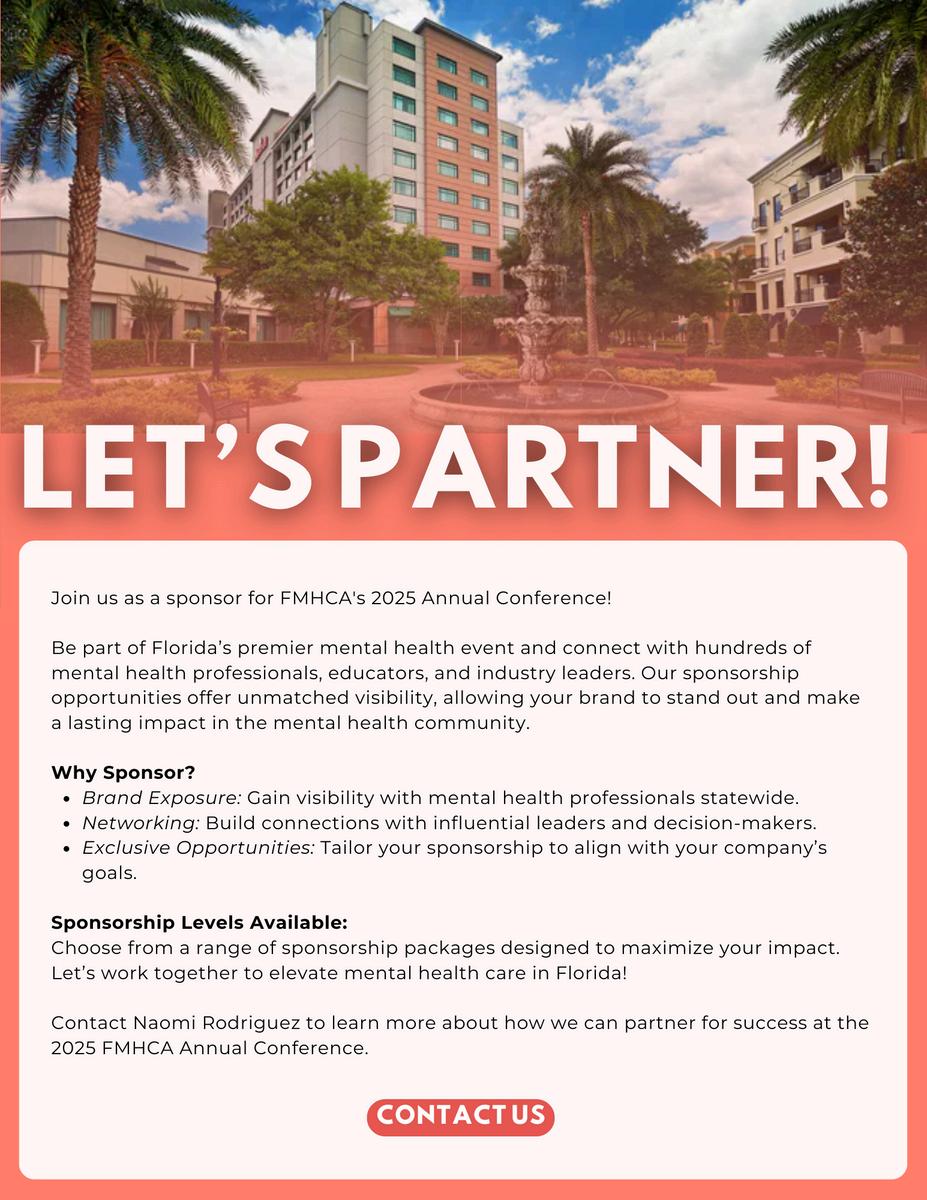
FMHCA Member Questions Answered by President and Managing Partner of The Health Law Firm, George
F. Indest, J.D., M.P.A., LL.M.
Mr. Indest is board certified by The Florida Bar in the legal specialty of health law. He is the President and Managing Partner of The Health Law Firm, based in Orlando, Florida. The information provided in this article is for educational and informational purposes only and does not constitute the provision of legal advice.
QWhat are some ethical considerations when using modern technology in mental health treatment?
AI see three (3) main considerations in the use of technology for delivering mental health services:
The first and foremost ethical consideration is always client confidentiality. This includes protecting client privacy and also the security of your communications with and health records on your clients. Be sure that whatever telecommunication system you use guarantees you that it is compliant with the HIPAA Security Regulations Also be sure that the electronic health records system you use is also HIPAA-compliant If your vendors are unable to make this guaranty, get a different vendor Also, always obtain a written, signed informed consent form back from your client acknowledging that the client authorizes you to use whatever technical modalities that you use with that client Be sure to address the use of voice-mails, text messages and e-mails, although these modalities either should not be used or used only in a very limited fashion. 1.
The second concern is to be sure that you maintain the same professional boundaries that you would if you were seeing the client in person Do not let your guard down and start e-mailing or text messaging a client outside normal session hours or about issues unrelated to your treatment of the client It is easy to forget the formalities and professionalism that are required when you begin texting or e-mailing with a client about matters outside of the professional relationship 2.
The third is to be sure that you are using a system that saves any and all communications into a documented, reproduceable format. Be sure that you can obtain all of your files and correspondence form whatever vendors you use if you stop doing business with that vendor. Remember that you are required to keep all health records for years after your therapist-client relationship ends If you are later sued for malpractice or , even more likely, have a professional complaint filed against your license, you will be required to produce all of your documentation, including the text and e-mail communications 3.
AQIs mental health therapy using technology platforms such as telehealth as effective as in-person therapy, or should providers be avoiding its use?
Telehealth has come to be accepted as an effective and efficient method form providing mental health
therapy Of course, there are exceptions fro the most serious mental illnesses and for the treatment of sever addictions, but even then, it can provide an effective adjunct and follow-up treatment. Furthermore, in increases the ability of mental health providers to reach those who might not otherwise seek or be able to obtain such therapy because of their remote geographic location, lack of transportation, disease (e g , agoraphobia, anthropohobia, enochlophobia, hypochondria), or indigency
Have legal/ ethical questions? Submit them here! Select questions will be answered by The Health Law Firm in the next issue of InSession Magazine’s Ask the Expert column.
Please note: only FMHCA members can submit questions. Not a member? Sign up here.
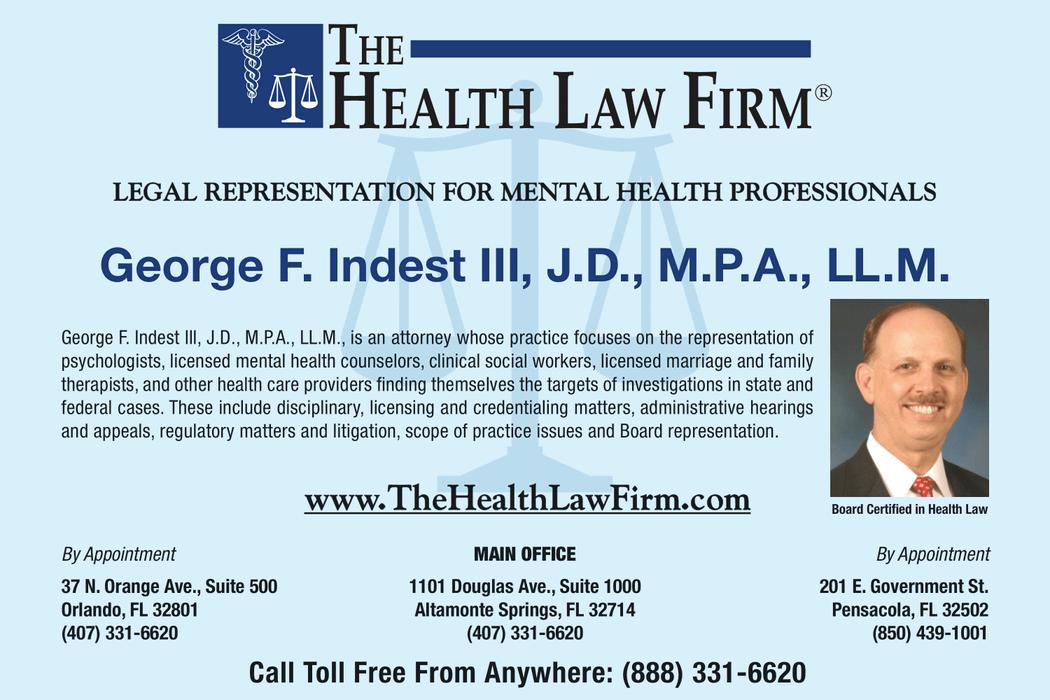


Having a parent with a prominent title such as a pastor can come with a sense of pride knowing that they are someone who people can look up to or come to in a time of need, however it can also have the potential to be very damaging due to the intense pressure that a preacher’s kid or PK for short faces. While the church is oftentimes viewed as a place of comfort, many times it is the PK that is the most neglected and overlooked person of all of the members in the congregation due to them having to share their parents with others and having to deal with the pressures of having a prominent parent.
With many people viewing the first family as the model family, this is where the glass house effect comes into play PK’s are oftentimes subjected to constant unrestricted monitoring from others which oftentimes unintentionally places them with the burden of having unrealistic expectations placed on them. This includes having to live up to the image of being the perfect and model child that has no flaws due to constantly being watched, criticized, and compared to other children whose parents may not have a prominent title such as a pastor, deacon, etc.
This glass house effect can lead to:
Anxiety: PK’s start to feel on edge or begin developing racing thoughts that include fear of failure due to others always watching them. The intense pressure to be perfect due to
constantly being monitored can cause problems in forming healthy bonds or relationships with others
Lack of self-identity: PK’s begin to have a lack of autonomy due to constantly being pressured to be what others want them to be. This includes not having the opportunity to develop their own sense of self-identity that is separated from the church or free from the intense societal pressure and expectations that are placed upon them as PK’s
Anger/Resent: PK’s end up becoming angry or may resent their church community for interfering in their family and personal life thus not allowing them a space for privacy. This anger and resentment can also be held towards their parents due to feeling that they are choosing the ministry over them. Some end up having a range of mixed emotions which includes anger and guilt for even having these feelings due to the need to be loyal to their parents or ministry.
With all of these factors in mind, this can cause PK’s to develop a fear of autonomy which in turn can cause many to be fearful or hesitant in opening up to others or expressing their true selves due to fear of invalidation or fear that the person will break their trust due to them primarily being viewed as a PK. Below are some factors you can practice when interacting with PK’s:
Offer a safe space: Be prepared to facilitate an open-ended conversation regarding the client’s religious concerns in terms of seeking services A client that is a PK may be new to therapy and may be afraid that if they share, the information may be used against them or get back to their parents or anyone else in the church. Explain how confidentiality works in therapy and offer reassurance that therapy is a safe space for them to be their authentic selves.
Offer support and validation: Making statements or asking questions such as: “Tell me about how Maria is feeling ” or, “I heard about what the church thinks, but what does Maria feel about ?” can offer a sense of validation and empowerment to the client and lets them know that they are seen and heard as an individual person and not just as a person with a title.
Using Emotional Differentiation: Taken from one of the concepts of the Bowen Family Systems Theory, this involves helping PK’s in learning how to maintain their own self-identity while also maintaining their connection with others. By doing
so, we are helping our clients in being able to better manage their emotions, communicate their needs effectively with others, make independent decisions, and build healthier relationships with others that support their authenticity.
Written By: April Williams, MCAP, Registered Mental Health Counselor Intern
April is a mental health clinician and a certified addiction professional serving clients in the state of Florida With her experience working in the pri population as well as currently with Meridian Behavioral Healthcare, April specializes in helping those struggling with addiction, anxiety, grief, and trauma. She is passionate about helping people on their journey towards healing and selfempowerment when facing trials and tribulations by letting them know that to live not only means just to survive, but to thrive in life.
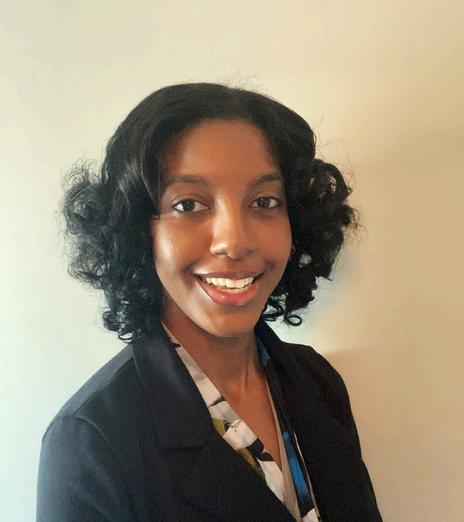
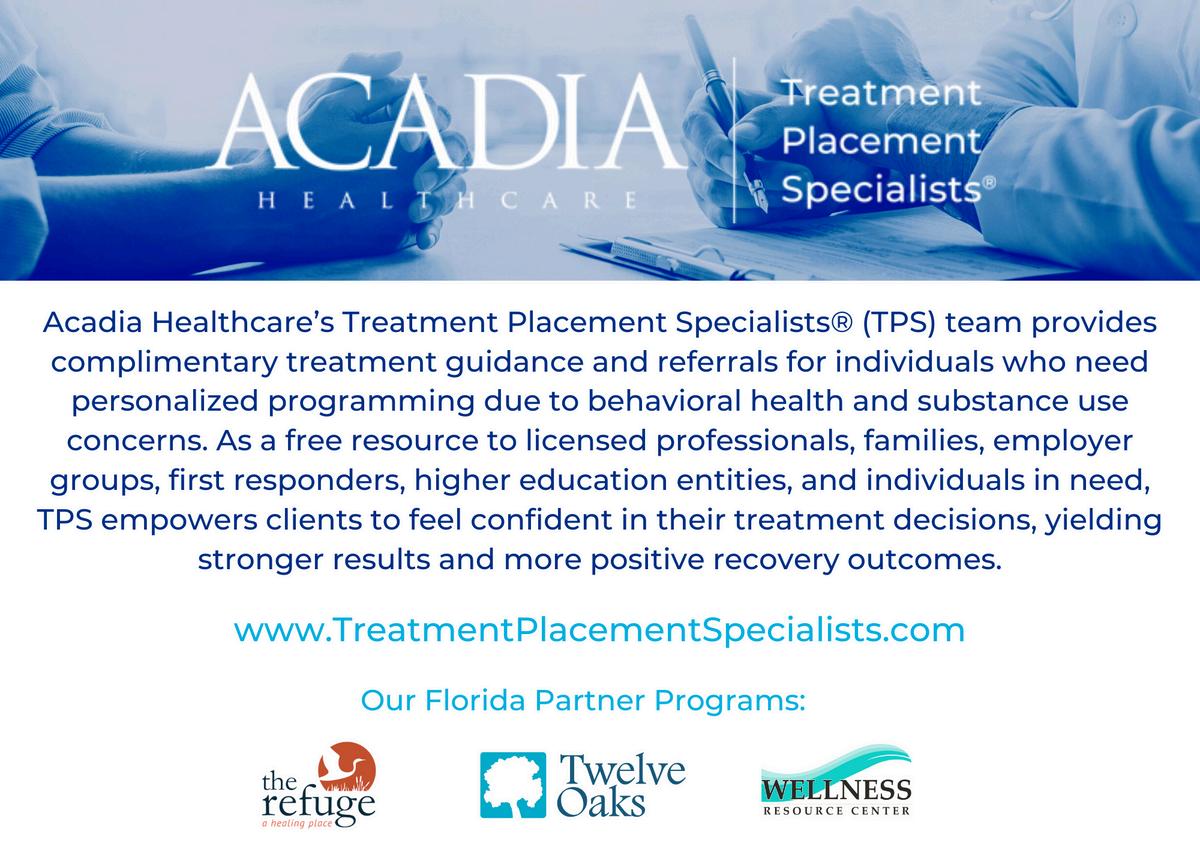
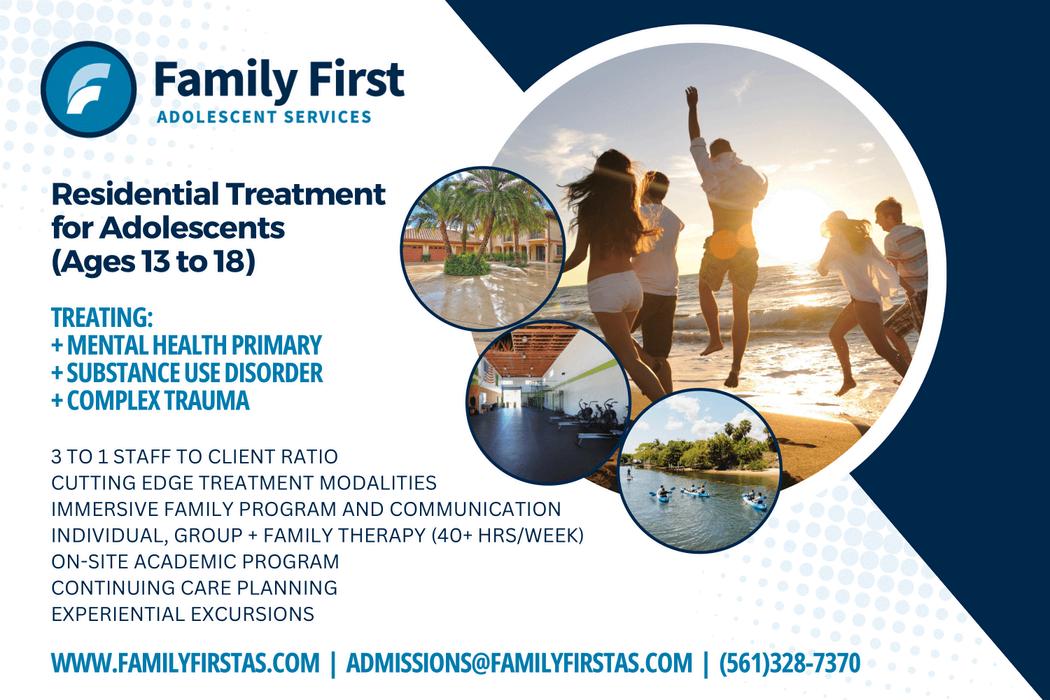
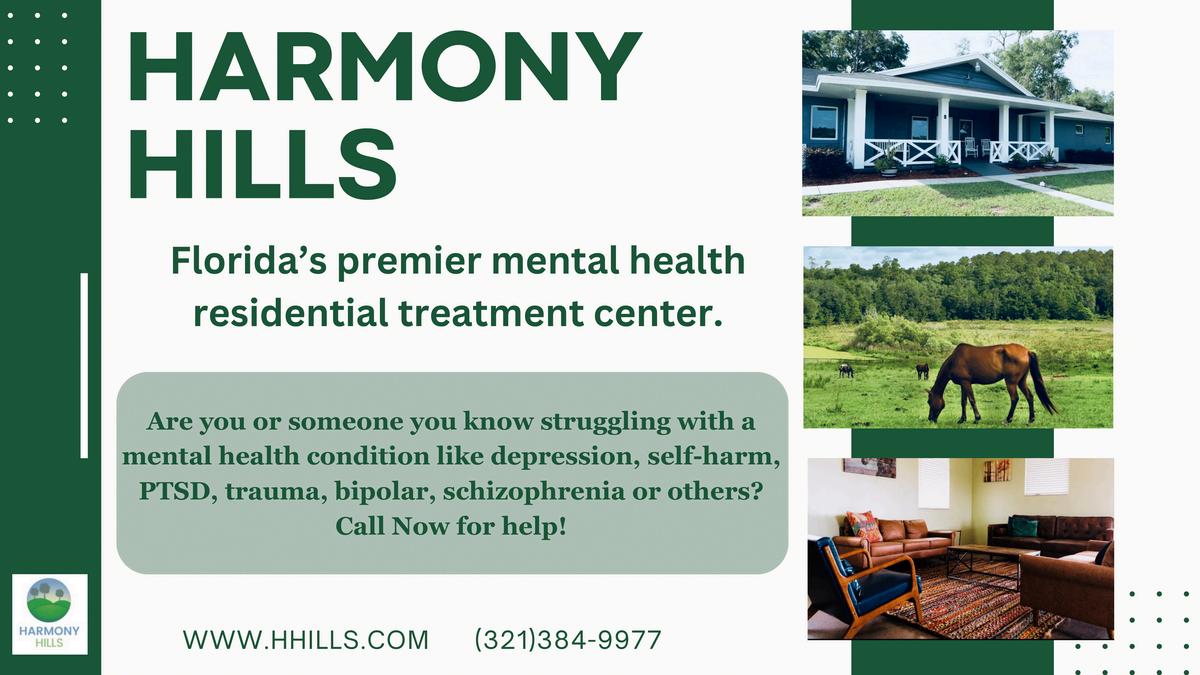

Professional Experience Article
Imposter syndrome is a term that is defined as individuals who feel like they are not as intelligent or competent as others may think and have a profound fear of being discovered as a fraud. This syndrome becomes increasingly apparent as it relates to achievements, appointed positions, or tasks. Imposter syndrome is derived from a combination of different aspects such as: a perfectionist personality trait, high achieving individuals, a sense of insecurity and self-doubt, societal and cultural factors, and lack of positive feedback or recognition When you examine imposter syndrome closely and consider how much time is spent in an environment, there is an overlap of how the type of leadership we are exposed to can impact our sense of self and confidence Since imposter syndrome can derive from lack of positive feedback, and insecurity and selfdoubt, it is no wonder that leadership can have either a positive or negative impact in how we view our abilities and sense of self. Once a person receives positive feedback there is likely to be increased internal motivation; however, if there is a lack of feedback or critical feedback, this is where imposter syndrome
may takeover This is because imposter syndrome can be a vicious cycle of anxiety and short-term relief; but can also include low self-confidence, a strong need to be the best, and an unwillingness to internalize positive feedback. Additionally, since imposter syndrome tends to impact those who are high achieving, it is not surprising that it tends to have a significant impact on individuals in their work environment.
Dysfunctional leadership is resultant of a leader’s mindset and leadership style Typically, dysfunctional leaders have mindsets and styles which contribute towards a dysfunctional approach This can include being closed off or fixed in their mindset, as well as leading from a primarily authoritative for narcissistic approach Dysfunctional leaders are viewed effective in the short-term capacity but can have long term consequences on agency culture and the team that they lead. Employees want an environment where they feel psychologically safe, are empowered, and have support. The lack of congruence between the leadership style and the person experiencing imposter syndrome may lead some people to feel incompetent. Overtime a diminished sense of self is going to cause high achieving employees to seek other opportunities to fuel the environment they crave to thrive and feel psychologically safe.
There is a focus on workplace mental health in today’s workplace society. When you break down agency culture, it is important to understand the agency as whole. People are influenced by their surroundings, which can influence the decisions they make. Leaders tend to lead from passion, but the message can often get lost in translation from their leadership style. To make improvements and build employees, leaders may want to consider their leadership approach. This can be done through various leadership training, assessments, and mentorship. Additionally, if someone is experiencing imposter syndrome they can seek support through family, friends, and professionals.
Written By: Ariella VanHara, LCSW
Ariella VanHara is a licensed clinical social worker (LCSW) and qualified supervisor (QS)
She has experience in various clinical roles and administrative leadership She is currently a Clinical Assistant Professor at Florida Gulf Coast University (FGCU) in a joint appointment with the Department of Social Work and Counseling and Psychological Services (CAPS) She also serves on the board of directors for a sexual assault agency, Project HELP Additionally, she serves as co-chair on the Chapter Committee for Nominations and Leadership (CCNLI) for the NASW-FL chapter

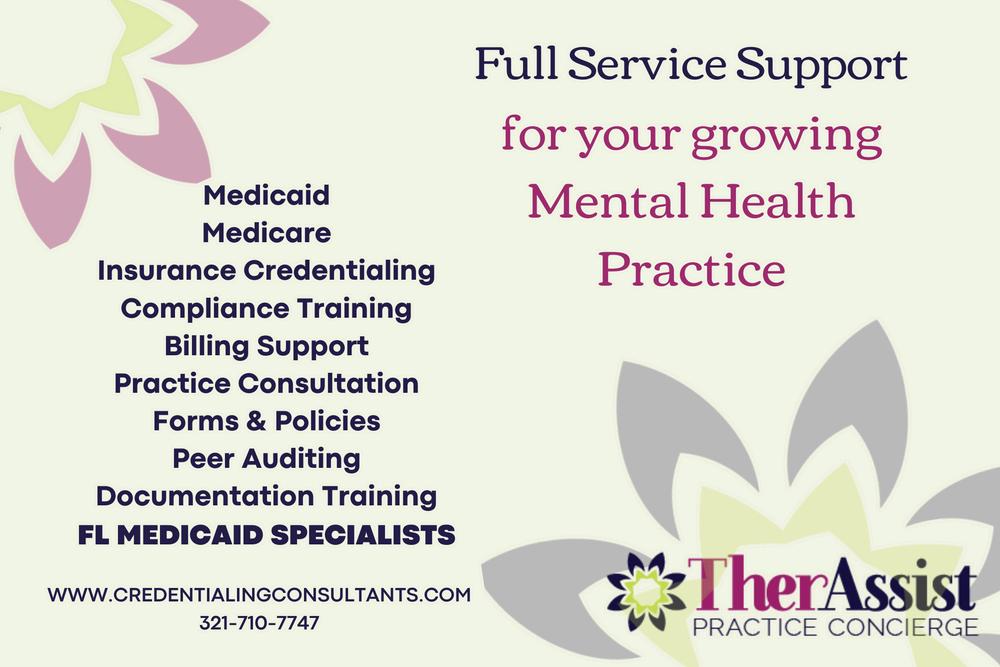
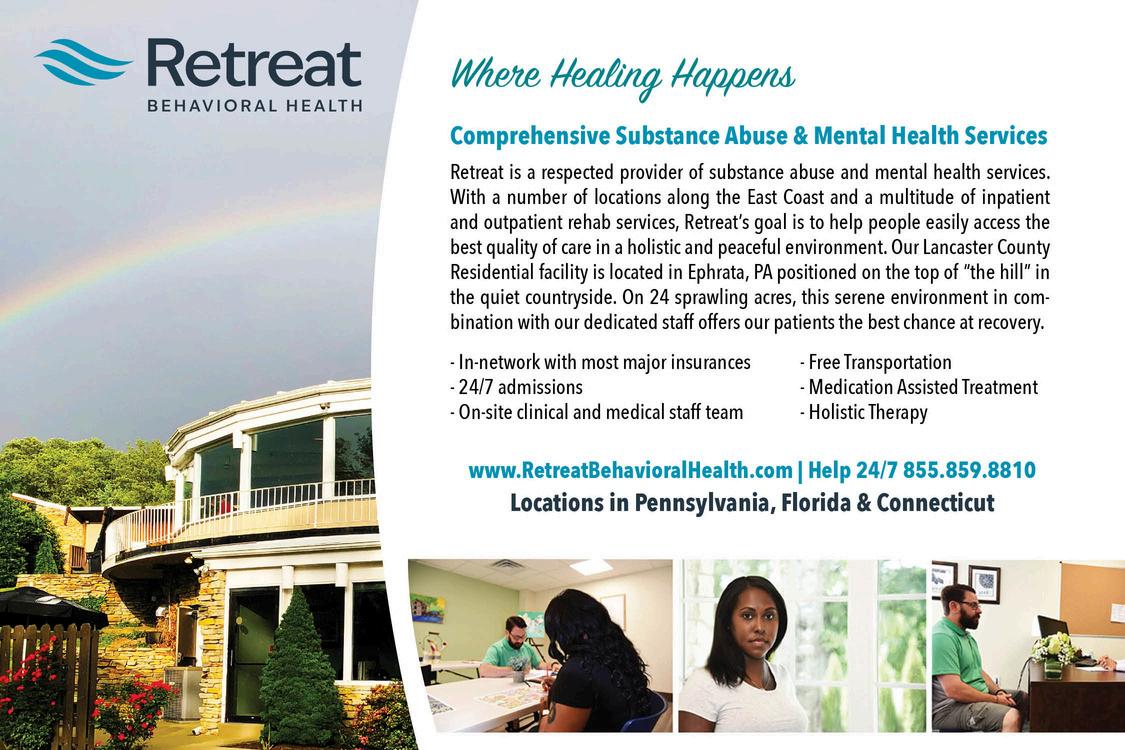
Provided by Committee Chairs
Registered Intern & Graduate Student Committee Committee Chair: Laura Peddie-Bravo, LMHC, NCC
Greetings! We enjoyed a successful Summer Bash in July and enjoyed meeting many of you! Many thanks to the FMHCA staff for all you did to make the annual Summer Bash a success! In case you missed it, please know the Summer Bash is an annual event and FMHCA will offer another next summer
Our next committee meeting will take place Tuesday, 11/4/24 from 11:00 am – 12 noon. This will be our last meeting/last event of the year.
As a reminder, this is a committee specifically designed for Graduate Students and Registered Mental Health Counselor Interns to meet and discuss current concerns, challenges, and offer each other support with the backing of licensed professionals. Qualified Supervisors are also welcome to be a part of this committee. We aim to discuss various relevant challenges for the two specific groups and address any participant questions that arise! We want to make this a space where Graduate Students and Interns can come together for support and leave feeling more prepared and competent for their future in mental health counseling! If you have any questions, please reach out to either The FMHCA Office or Laura Peddie- Bravo
We will be starting off 2025 with an in-person event at the 2025 FMHCA conference! Our mixer event will be Wednesday, January 29th, 2025, from 6:30 pm – 7:30 pm. Light refreshments will be served courtesy of FMHCA. This will be a great opportunity to get to know us and ask any questions you may have. We hope to see you there!
Additionally, the Annual FMHCA Conference is a terrific opportunity to network and get to know your colleagues, obtain information beyond what you’ve learned in graduate school, and have a great time! There are volunteer opportunities available which greatly reduce the cost of attending. If you are interested in volunteering, please apply here.
Committee Chair: Aaron Norton, PhD, LMHC, LMFT
This quarter, FMHCA’s Government Relations Committee (GRC) has continued to meet monthly, and 3 subcommittees have been meeting between monthly meetings Here are some of the issues the GRC has been addressing this quarter:
A GRC subcommittee has been meeting with a committee of the Florida Psychological Association (FPA), conducting research and communicating with law enforcement agencies and the Florida Dept of Education to explore the role that mental health professionals can play in reducing targeted school violence. This process has also involved surveying our members who work in school settings. We are developing a related training in cooperation with the US Secret Service, so be on the lookout for a related announcement soon!
After conducting research, administering a membership survey, consulting with our lobbyist (Corinne Mixon), and obtaining approval from the FMHCA Board of Directors (BOD), the GRC has issued a recommendation to the 491 Board to consider adopting a new rule related to counselors and raw test materials, data, and protocols. We believe that such a rule would make it easier for counselors to adhere to ethical and legal restrictions on releasing testing materials to clients, attorneys, and others, while also further codifying the rights of counselors to administer and interpret psychological tests, just as our colleagues in psychology do A copy of that recommendation is included here
A subcommittee of the GRC has been formed that is working on a project that will likely result in a recommendation to the Florida Department of Education to (1) revise the Division of Vocational Rehabilitation’s policy manual to remove the requirement that diagnoses from 491 board licensees be accepted for VR eligibility purposes only if the 491 board licensee is supervised by a psychologist or physician; and (2) clarify that accommodation recommendations from LMHCs will be accepted and considered in public schools.
A subcommittee of the GRC has developed a training on the dos and don’ts of meeting with legislators when lobbying for the profession or when introducing legislators to FMHCA as a resource. That webinar will be broadcasted on 11/13/24, and you can register by clicking here.
Training Members on Lesser-Known Laws and Rules
A subcommittee of the GRC has been developing a training on laws and rules that very few 491 board licensees seem to be aware of but that can lead to harsh penalties. More info coming soon!
Ethics Committee
Committee Chair: Michael G. Holler, MA, NCC, CFMHE, CCCE, CCMHC, LMHC
As of September 2020, the Ethics Committee consists of four members: Michael G Holler, LMHC, Howard Chusid, EdD, LMHC, Dr Sarah Sheffield, LMHC, & John R Jones, Jr LMHC This seems to be a very functional number of members in that it helps us to accept consults and respond to them in a timely manner
In previous times, members could call the 491 board with regard to statutory issues and get answers. Currently, it appears that the 491 board is not providing these answers anymore, but referring them back over to the ethics committee.
It is still our current practice to have members who have an ethics issue fill out the ethics form and submit it The form is then provided to the members of the Ethics Committee to review the issue and discuss it to come up with answers, which are then provided, generally, by the Ethics Committee chair.
Statutory questions may not necessarily require an Ethics Committee consult, as the answers are provided in the statutes. Most of the questions coming in in the last six months to a year have been statutory questions, and not generally ethics questions. The FMHCA office has been very good about having people fill out the form. However, members are tending not to fill out the form in very informative ways. The FMHCA office is encouraged to inform them that the answers to the questions on the form need to be more fully elucidated. That being said, generally, when we get a form from a member, I'll get on the phone and consult with them to get more thorough answers, which I then provide to the committee to discuss.
Committee Chair: Maria Giuliana, LMHC, QS, US Navy Retired President-Elect
The Florida Mental Health Counselors Association's (FMHCA) Military Committee is actively supporting mental health professionals who work with veterans, military personnel, and their families. As the mental health challenges facing veterans increase, particularly with the recent VA Community Care restrictions, the Military Committee has expanded its efforts to
offer support, resources, and a platform for collaboration among professionals impacted by these changes
The committee meets on the last Thursday of each month through October 2024. In a commitment to fostering community and support, the committee has opened these meetings to any providers affected by the VA's denial of continuation of services. This creates a much-needed space where professionals can share their experiences, seek advice, and work together to navigate the challenges posed by recent policy changes.
Looking ahead, the first meeting of 2025 will be held during the 25th Annual FMHCA Conference in Lake Mary, with more details to be provided closer to the event This conference will serve as an opportunity for mental health counselors to come together, network, and continue enhancing their skills in mental health care.
Over the past few months, the Military Committee has prioritized increasing awareness about the VA's community care restrictions and offering peer support in all matters concerning military mental health As mental health professionals who are dedicated to serving the military community, the committee understands the unique challenges that arise in this field Whether you’re providing services to active-duty personnel, veterans, or their families, or if you ' re navigating the complexities of the VA community care system, staying informed and competent in military mental health is crucial.
Us for the Monthly FMHCA Military Committee Meeting
The monthly FMHCA Military Committee meeting is designed to be a collaborative space where mental health professionals can engage in peer-to-peer support and discussion of the current issues affecting the military community. Whether you ' re dealing with a difficult case or just want to share your expertise, this meeting provides a confidential and supportive environment where all voices are heard.
This is your opportunity to:
Seek advice on challenging cases
Share experiences working with military clients
Collaborate with fellow clinicians
Stay updated on the latest trends in military mental health care
Build a network of like-minded professionals dedicated to providing the best care to veterans and military personnel By participating, you’ll not only help foster a collaborative environment but also continue growing as a professional in this specialized field. Together, we can ensure that our clients
receive the highest standard of care and support
Meeting Details:
Date: Last Thursday of each month
Time: 12:00 PM - 1:00 PM Eastern Time
Platform: Zoom
Meeting ID: 992 8498 3539
Passcode: L8uQjVRu
We encourage all mental health counselors working with the military community to join us for these valuable sessions. Don’t miss the opportunity to connect, collaborate, and enhance your competency in military mental health. We look forward to seeing you there!
Joining a committee is a great way to participate in FMHCA and increase your presence in our community. We have several committees that we would love you to participate in! Here is a list of all our committees, their purpose, and their chairperson
We invite you to contribute your efforts as there are numerous opportunities for you to get involved and make a difference. For more information on how to participate right away, please contact the chair committee or fill out this form.

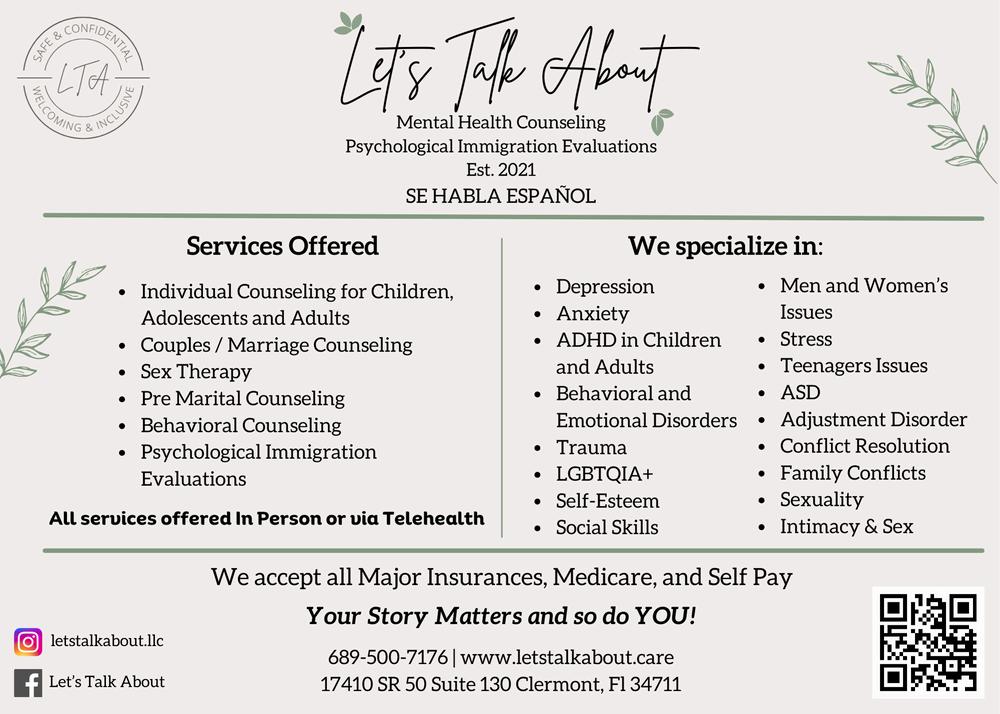

*The views expressed in this article are solely those of the authors and do not reflect the views of the University of Central Florida.
There has been a positive trajectory in multicultural considerations within the academic field in the last few years However, there continues to be a lack of visibility of the complexities of navigating the Arab experience in the United States (U S ) One such area unique to Arabs is being seen as a minority group but often not being classified as a minority group The term Arab can be defined as an individual coming from an Arabic speaking country and having ancestral ties to one of the 22 Arab nations in the Arab League (El-Sayed & Galea, 2009). Yet, according to the U.S Census Bureau, individuals of Arab descent were categorized as “white” (Abboud et al., 2019). The Office of Management and Budget (OMB) first established race and ethnicity standards in 1977, updated in 1997 to add a Hispanic/Latino category (2023). Although initial proposals for a MENA category were rejected, advocacy led to its testing in 2015 and a recommendation for inclusion in the 2020 Census, which was ultimately overruled (National Iranian American Council (NIAC), 2024). However, on March 18, 2024, the OMB announced that the 2030 Census will officially include “Middle Eastern and North African” (MENA) as a distinct category (NIAC, 2024) For years, this inaccurate classification resulted in discrepancies in population count, which led to unmet needs, reduced allocation of funds for community development, and lack of representation in
governmental reports and still does due to slow progress after policy changes (Abboud et al , 2019; Melhem et al , 2019) This underscores the need for increased focus on Arab visibility Current Arab representation is viewed through the lens of Western media without incorporating the Arab perspective In light of the current tragedies of the Middle East, those of Arab identity are navigating additional burdens, like the negative impacts of misinformation and disinformation, leading to dehumanization and hate crimes. It is important to note that in addition to external factors, like being silenced, Arabs are also subjected to on-going trauma and grief. The bombardment of images and information that continue to surface can lead to heightened stress.
While scholars have begun to speak out about the importance of the incorporation of advocacy and multicultural competence in our curriculum and research, we have fallen short in implementation of these objectives, particularly with the Arab population. Our Arab brothers and sisters are experiencing a deep sense of cognitive dissonance. We are witnessing the events of genocide unravel via unedited and uncensored Palestinian social media accounts. However, we are experiencing helplessness to make change, being geographically distant and not having emotionally safe spaces
to speak out Throughout our professional journeys, “allyship” and “advocacy” are buzzwords that are often used, yet as Arabs our experiences are “othered”, and we have to lobby for solidarity and audition for empathy for our experiences and grief to be acknowledged. As mental health professionals, we recognize that to heal from trauma we need to acknowledge the trauma and remove ourselves from it in order to begin the healing process. How can we begin to heal as a community if we are not given the spaces to do so?
In an effort to bridge the gap between knowledge and action, we have provided a non-exhaustive list of ways to increase visibility and support of Arab communities:
Advocate for transparency in allocation of funds in large systems (e.g., universities, public policy)
Boycott and consume intentionally when making purchases
Amplify oppressed voices
Contact representatives to influence policy
Protest peacefully
Hold space in professional settings for those affected
Consume knowledge critically
Donate to humanitarian organizations
Speak up when you hear injustice across all settings Our words hold weight Through connection and empathy, we have the power to make change in the world. In the words of Maya Angelou, “The truth is, no one of us can be free until
Abboud,S.,Chebli,P.,&Rabelais,E.(2019).TheContestedWhitenessofArabIdentityintheUnitedStates: ImplicationsforHealthDisparitiesResearch.AmericanJournalofPublicHealth,109(11),1580–1583. https://doi.org/10.2105/ajph.2019.305285
El-Sayed,A.M.,&Galea,S.(2009).ThehealthofArab-AmericanslivingintheUnitedStates:asystematic reviewoftheliterature.BMCPublicHealth,9(1).https://doi.org/10.1186/1471-2458-9-272
Melhem,I.&Chemali,Z.(2019).MentalhealthofArabAmericans:Culturalconsiderationsforexcellenceof care.InR.Parekh(ed.).TheMassachusettsgeneralhospitaltextbookon diversityandcultural sensitivityinmentalhealth:Currentclinicalpsychiatry(pp.3-30) NewYorkHumanaPress. NationalIranianAmericanCouncil.(2024,February29).MENAcategoryintheU.S.census:Memo. https://www.niacouncil.org/news_publications/mena-category-in-the-u-s-censusmemo/#:~:text=However%2C%20as%20of%20March%2018,Iranian%20included%20as%20a%20subcateg ory
OfficeofManagementandBudget.(2023,January25).OMBstatisticalpolicydirectiveno.15onraceand ethnicitydatastandards.spd15revision.gov. https://spd15revision.gov/content/spd15revision/en/history.html
Written By: Serene Hasan, MA, LMHC, LMFT, CRC, CEDS, QCS (FL) & Tamara Makki, MA, NCC
Serene Hasan is a third-year doctoral student and member of the American Counseling Association (ACA) and Southern Association for Counselor Education and Supervision (SACES) She specializes in working with clients who struggle with anxiety, relationships, eating disorders, life transitions, and communication Tamara is a s econd-year doctoral student in Counselor Education at the University of Central Florida ('26) of the Clinical Mental Health Counseling Master's program at the University of San Diego ('22)



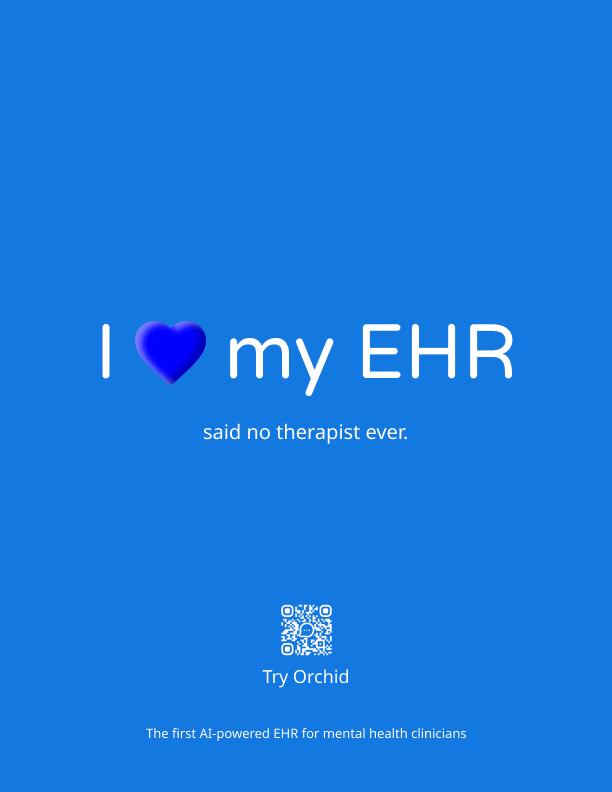

It may seem like boundaries are for keeping things out, for creating distance and walls but I like to think of them more positively To me, as a therapist, boundaries offer freedom, relief and instruction for ways I can work with clients more confidently
I’m reminded of a time when I was starting out in my practicum. One particular case was challenging and fraught with decisions about how to proceed with care. This young mom was struggling to regain custody of her 2 children, and I was appointed as the person who would oversee her first few tentative visits with her kids We worked hard together to help her strike the right balance of firm and kind with them in these sessions, and as we progressed, I could see the relief she felt when each visit got easier and easier As a single mom she worked hard to comply with what she was asked to do for the process to regain custody During our last session, she and I sat and reviewed the months we’d spent together and the successes she’d had. As we were saying our goodbyes, she pulled out two packages and presented them to me. Uh-oh, gifts, I thought. I said something about gifts not being necessary or appropriate but she urged me to open the packages. A small glass angel and a piece of jewelry. Panicking inside, I searched for words to
convey how I felt in the face of her appreciation Remembering my training, I asked her what the gifts represented and what she wanted to tell me with them The conversation was important, and we stumbled through it, ultimately allowing me to accept the angel and it’s symbolic meaning and give her back the jewelry, as a gift to herself.
Another example, years later, came when a close neighbor told me his teenaged son was struggling with school and friendships The boy was open to talking with someone, and my neighbor said he thought the child would be more likely to attend therapy if it was close to home, (I had a home office at the time) Nope, not happening By that point in my career, I knew holding a boundary around dual relationships was the correct thing to do. I played out the scenario with the parent and was able to help him understand the future conflicts that could arise out of overlapping relationships: family friend and neighbor, confidentiality and the therapeutic relationship.
A while ago I scheduled a new couple who said they were trying to navigate a second marriage and step parenting Feeling pretty confident about that subject, as a step parent myself, we scheduled an appointment During the first session, they began describing their situation, her biological daughter that he was struggling to get to know, an infidelity and how that came into play between stepdad and daughter and mom. As I listened, I felt the story was familiar, that I’d heard it told before by someone else. Mid-session, when the mom casually said her daughter’s name, it hit me. The daughter was also my client. I knew the daughter had told mom she was in therapy, so thinking quickly, I admitted to the couple that there was a conflict of interest and that I was unable to hear more of their story or to work as their therapist. With the red light of that clear boundary, I was able to refer the couple on.
As therapists, we hold client’s private and precious information for them, trauma as well as joy, and with this holding comes great responsibility. By adhering to clear boundaries, and having close colleagues to discuss not-so-clear boundaries with, I think we can take good care of ourselves and others.
Written By: Noreen F Weihe, MA, LMHC
Noreen is a psychotherapist in NE Florida
Licensed in Florida, Washington State and California, Noreen enjoys working with clients looking for help with anxiety, life changes, relationship challenges and living lives of joy and purpose A new member of FMHCA, Noreen is currently accepting new clients www counselingmadisonpark com


Provided by FMHCA Lobbyist, Corinne Mixon
The August primary election in Florida produced several noteworthy results, particularly in the races for the Florida House of Representatives, Florida Senate, and school boards. A striking trend this year was the success of moderate candidates, which contrasts with the more polarized results seen in recent elections. While past cycles saw more extreme candidates gain traction, voters this year gravitated toward centrists, signaling a shift in voter sentiment and a possible desire for more balanced governance
Moderate candidates prevailed in several key Florida House and Senate races, reflecting a shift in the political landscape This could influence the direction of upcoming legislative sessions, especially in terms of passing bipartisan bills on education, healthcare, and infrastructure With several open seats in key districts, including the highly competitive central and southeast
regions, the general election is shaping up to be crucial for both parties.
In school board elections, candidates advocating for a focus on student achievement, support for teachers, and depoliticizing school administration performed well Voters seemed to favor practical governance over ideological battles, showing a clear desire for school boards to refocus on core educational issues.
As Florida heads into the general election, several factors will be critical The presidential election is expected to drive voter turnout significantly. Historically, presidential election years see increased participation, which can affect down-ballot races in unpredictable ways.
Despite years of growing Republican registration and the fact that many more Republicans will prevail than Democrats,
recent polling suggests that Democrats may have gained momentum for this ballot For the past several years, the GOP has been steadily gaining voters in Florida, but Democratic candidates have been polling well in several key areas. This suggests that while Republicans still have an advantage in voter registration, the general election could be more competitive than previously anticipated. While Florida will remain a red state after the November 5 election, polling shows interesting potential voting trends. Recent polling indicates a possible Democratic resurgence in getting-out-the-vote, with potential gains in key regions like South Florida and parts of the I-4 corridor. These developments are worth watching closely as the general election approaches.
In addition to key races, voters will decide on several critical ballot initiatives this November. The stature of these amendments is likely to drive-out more voters than ballot initiatives found on any ballot in the last 20 years. Amendments 3 and 4, marijuana and abortion respectively, will likely be very close. It is worth noting that, while amendments aimed at preserving abortion rights have fared well on state ballots, including in red states, this will be the first time a state has seen
such an amendment alongside the names of two hard-hitting presidential candidates. No pollster can accurately predict the outcome the two will have on one another.
With so many critical races and ballot measures on the line, staying informed is crucial. Understanding candidates' platforms, knowing the implications of the amendments is critical to the citizens of Florida as well as the mental health counseling profession.
Written By: Corinne Mixon, DPL
Corinne is a registered professional lobbyist with sixteen years of experience representing clients’ state governmental interests.
At Rutledge Ecenia, Corinne represents a broad client base with a particular emphasis on health care practitioners, education and regulated industries and professions She has been instrumental in passing myriad legislation and killing bills which would have negatively impacted her clients
